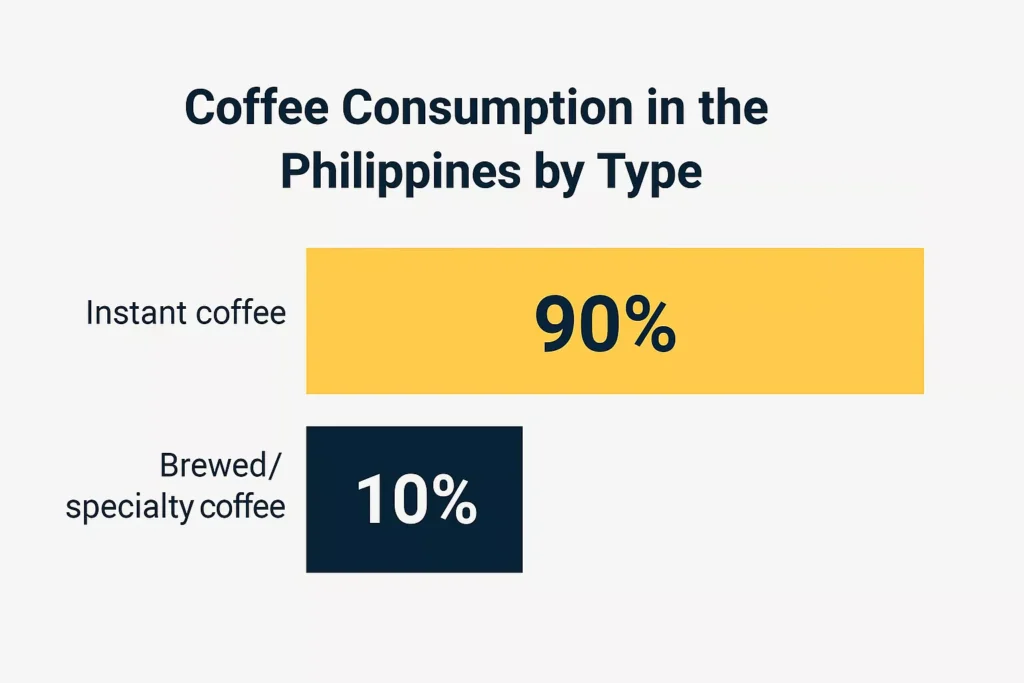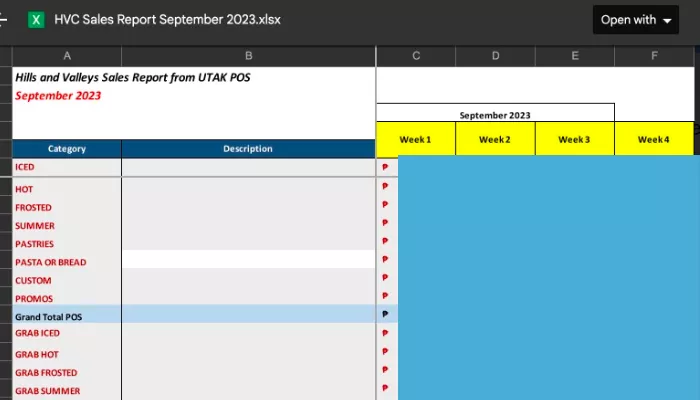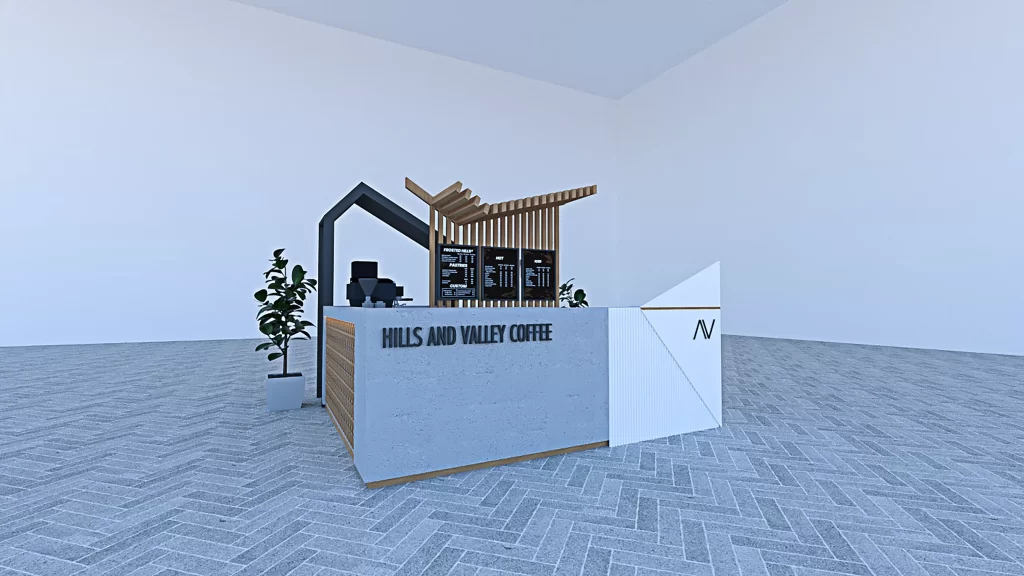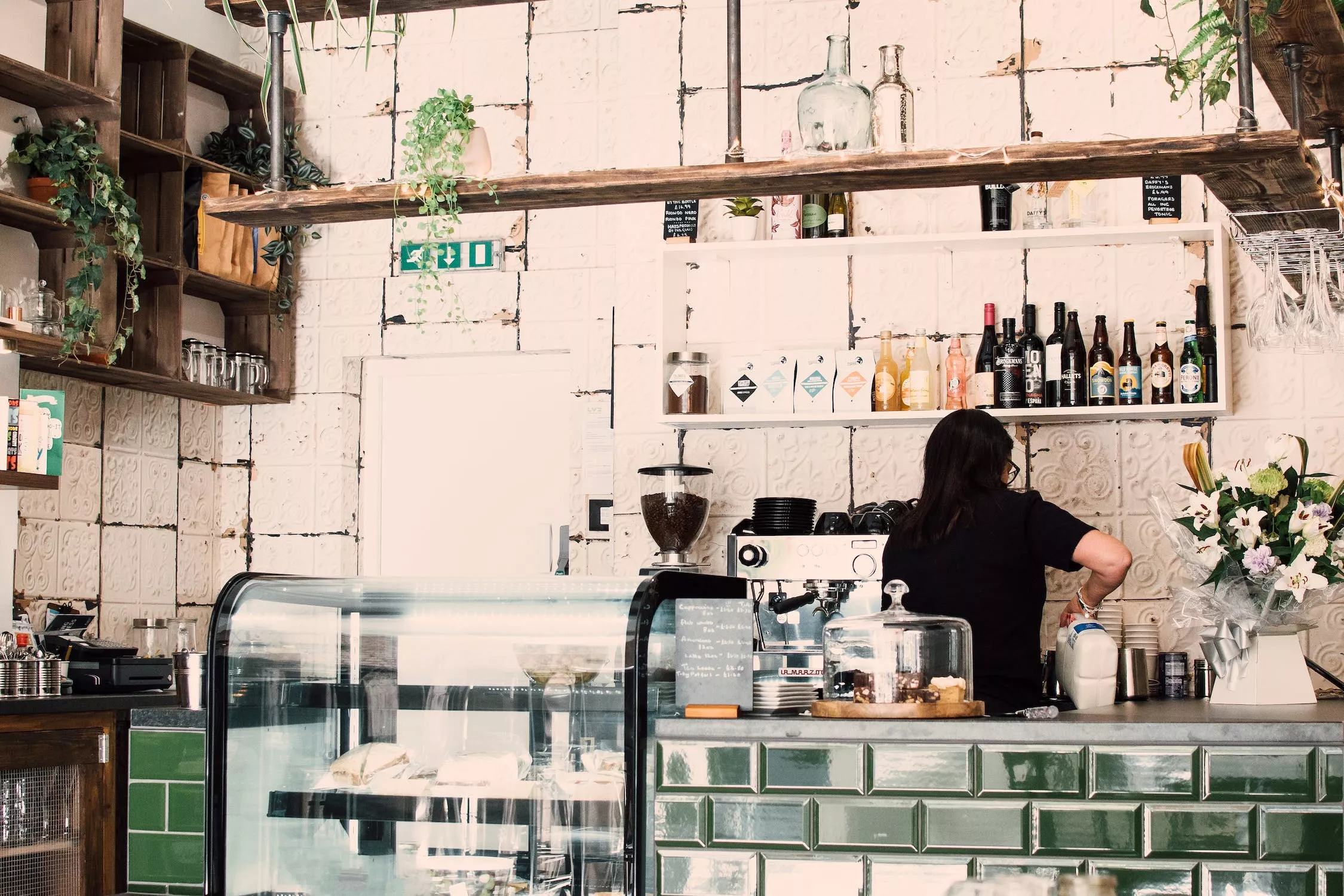63 Coffee Statistics in the Philippines You Need to Know in 2025
Coffee statistics in the Philippines have revolutionized the beverage industry much like fintech did to the financial sector, morphing it into a multi-billion peso stronghold that experiences incredible year-on-year growth.
Projections indicate that the coffee sector, which includes the cultivation, production, and coffee shop businesses, may surpass PHP 200 billion by the end of this decade.
How big is the coffee market in the Philippines?
As of 2023, the Philippine coffee market is valued at USD 1.62 billion, with a projected CAGR of 5.9% from 2023 to 2028.
What percentage of Filipinos drink coffee?
About 90% of Filipino adults consume coffee daily. Coffee drinking is embedded in Filipino culture, often enjoyed during breakfast or social gatherings.
What type of coffee do Filipinos consume the most?
Instant coffee remains the most popular type, capturing nearly 90% of market share. Convenience and affordability are key reasons behind its widespread use.
How much coffee does the Philippines consume annually?
The Philippines consumes more than 100,000 metric tons of coffee annually. Local production cannot meet demand, so over 70% of coffee is imported.
Is the Philippines a coffee-producing country?
Yes. The Philippines produces four varieties of coffee: Arabica, Robusta, Excelsa, and Liberica. Despite this, local production accounts for only 30% of national consumption.
What is the main challenge in the Philippine coffee industry?
The biggest challenge is low productivity on farms. Factors include aging farmers, limited access to modern equipment, and strong foreign brand competition.
How do MSMEs perform in the coffee manufacturing sector?
MSMEs in coffee manufacturing reported performance better than target in return on assets (ROA), profit margin, sales growth, and market share. However, they operate under high competitive pressure.
What factors affect coffee MSME performance?
Based on Porter’s Five Forces framework, key factors are:
- Competitive rivalry: Very high
- Bargaining power of suppliers and buyers: High
- Threat of new entrants and substitutes: High
These forces significantly affect MSMEs’ financial performance.
What is the forecast for the coffee industry in the Philippines?
The government aims to achieve 100% self-sufficiency by 2040. Current efforts focus on improving local production through training, mechanization, and investment partnerships.
Are there opportunities in the Philippine coffee market?
Yes. Growth areas include:
- Specialty coffee shops
- Ready-to-drink (RTD) products
- Sustainable sourcing
- Local bean promotion
Rising coffee consumption and urbanization create more room for innovation and entrepreneurship.
Coffee Industry Philippines Statistics
The Philippines is the 14th largest coffee producer in the world, contributing significantly to the global coffee industry. (Source: The Philippine Coffee Industry Roadmap 2021-2025)
The coffee industry in the Philippines is expected to grow at a CAGR of 3.5% from 2021 to 2025. (Source: The Philippine Coffee Industry Roadmap 2021-2025)
The Philippines coffee industry is dominated by four primary species: Arabica, Robusta, Excelsa, and Liberica. (Source: The Philippine Coffee Industry Roadmap 2017-2022)
Robusta accounts for 69% of the total coffee production in the country. (Source: The Philippine Coffee Industry Roadmap 2021-2025)
The Philippine coffee industry predominantly comprises smallholder farmers, with 95% of farms measuring less than 5 hectares. (Source: The Philippine Coffee Industry Roadmap 2017-2022)
The country's coffee industry faces a significant gap between production and consumption, with a deficit of 37,000 MT in 2017. (Source: The Philippine Coffee Industry Roadmap 2017-2022)
The Philippines government has developed the Philippine Coffee Industry Roadmap 2017-2022 to boost the sector's growth. (Source: The Philippine Coffee Industry Roadmap 2017-2022)
The coffee industry in the Philippines is characterized by very high competitive rivalry. (Source: Industry Characteristics and Performance of Philippine Coffee Manufacturing Firms: MSMEs Perspective)
The threat of potential entrants in the Philippine coffee industry is high, indicating that new companies can quickly enter the market. (Source: Industry Characteristics and Performance of Philippine Coffee Manufacturing Firms: MSMEs Perspective)
For the first quarter of 2023, the production of coffee (green coffee beans) in the Philippines was estimated at 9.42 thousand metric tons, marking a 1.3 percent increase from the same quarter of 2022. (Source: Philippine Statistics Authority)
Robusta remains the country's most-produced type of coffee, accounting for 73.5 percent of the total production during the first quarter of 2023. (Source: Philippine Statistics Authority)
SOCCSKSARGEN is the highest producer of coffee in the Philippines, contributing 33.4 percent of the country’s total coffee production for the first quarter of 2023. (Source: Philippine Statistics Authority)
Revenue in the Coffee market in the Philippines amounts to US$2.33bn in 2023. (Source: Statista Market Forecast)
The Coffee market in the Philippines is expected to grow annually by 8.22% (CAGR 2023-2028). (Source: Statista Market Forecast)
The volume in the Coffee market is expected to amount to 183.10m kg by 2028. (Source: Statista Market Forecast)
The average volume per person in the Coffee market is expected to amount to 1.25kg in 2023. (Source: Statista Market Forecast)
The revenue in the coffee segment is projected to reach US$4,439m in 2023. (Source: Statista)
The market is expected to grow annually by 12.1% (CAGR 2023-2025). (Source: Statista)
In relation to total population figures, per-person revenues of US$40.63 will be generated in 2023. (Source: Statista)
The average per capita consumption stands at 2.4 kg in 2023. (Source: Statista)
Arabica coffee, which shared 24.2% of total production, increased by 2.0%. [Source: Philippine Statistics Authority]
Production of Excelsa coffee, which accounted for 5.8% of the total output, rose by 1.1%. [Source: Philippine Statistics Authority]
However, Liberica coffee, which contributed 0.3% to the total production, declined by 1.6%. [Source: Philippine Statistics Authority]
The Philippines’ instant coffee market is estimated to grow at a CAGR of 12.29% to reach a market size of US$4,422.197 million in 2028 from US$1,964.402 million in 2021. [Source: Knowledge Sourcing]
The prime factor predicted to drive the growth of the Philippine instant coffee market is the growing trend of coffee consumption, in addition to the increasing production initiatives taken by the government in the country. [Source: Knowledge Sourcing]
The offline segment dominates the Philippines' instant coffee market, owing to greater storage space and a wider selection among many products contributing to the demand for retail growth under the offline segment. [Source: Knowledge Sourcing]
Coffee Consumption Philippines Statistics
Filipinos consume an average of 2.4 cups of coffee per day. (Source: The Philippine Coffee Industry Roadmap 2017-2022)
The annual per capita consumption of coffee in the Philippines is estimated at 2.4 kg. (Source: The Philippine Coffee Industry Roadmap 2017-2022)
The total coffee consumption in the Philippines is projected to reach 166,000 MT by 2022. (Source: The Philippine Coffee Industry Roadmap 2017-2022)
The consumption of soluble coffee in the Philippines is expected to grow at a CAGR of 5.5% from 2021 to 2025. (Source: The Philippine Coffee Industry Roadmap 2021-2025)
The consumption of green coffee in the Philippines is expected to grow at a CAGR of 2.7% from 2021 to 2025. (Source: The Philippine Coffee Industry Roadmap 2021-2025)
The Philippines' instant coffee market is projected to grow at a CAGR of 12.29% to reach a market size of US$4,422.197 million in 2028 from US$1,964.402 million in 2021. (Source: Philippines Instant Coffee Market Size: Industry Report, 2023 – 2028)
Filipinos are projected to spend an average of $44 per person on instant coffee in 2022. (Source: Coffee Affection)
Filipinos are expected to consume 3.78 kilograms of coffee per person by 2025. (Source: Coffee Affection)
Before the Covid pandemic, Filipinos consumed 3.4 kilograms of coffee per person per annum. (Source: Coffee Affection)
The Philippines is the second-largest consumer of coffee in Asia. (Source: Coffee Affection)
90% of households in the Philippines have coffee in their cupboards. (Source: Coffee Affection)
93% of households buy some coffee every week. (Source: Coffee Affection)
Filipinos are now considered heavy coffee drinkers. (Source: Coffee Affection)
Coffee Shop Philippines Statistics
The number of coffee shops in the Philippines has been growing steadily, with a 3% increase in outlets in 2017. (Source: The Philippine Coffee Industry Roadmap 2017-2022)
The coffee shop industry in the Philippines is dominated by international chains, with local chains and independent outlets also making a significant contribution. (Source: The Philippine Coffee Industry Roadmap 2017-2022)
The coffee shop industry in the Philippines is expected to grow at a CAGR of 7.1% from 2021 to 2025. (Source: The Philippine Coffee Industry Roadmap 2021-2025)
The average spend per visit to a coffee shop in the Philippines is PHP 300. (Source: The Philippine Coffee Industry Roadmap 2017-2022)
The coffee shop industry in the Philippines is characterized by high competitive rivalry, with a large number of international and local players. (Source: Industry Characteristics and Performance of Philippine Coffee Manufacturing Firms: MSMEs Perspective)
The coffee shop industry in the Philippines has seen a significant increase in the number of local coffee shops, contributing to the industry's overall growth. (Source: Coffee Shops in the Philippines: Statistics)
Coffee retail brands such as UCC, Starbucks, and Coffee Bean & Tea Leaf have established a strong presence nationwide, providing further incentives for the industry to develop. (Source: Philippines Instant Coffee Market Size: Industry Report, 2023 – 2028)
Starbucks is, by far, the biggest coffee shop chain in the Philippines. (Source: Coffee Affection)
The average cost of a cup of coffee in a coffee shop in the Philippines is $3.02. (Source: Coffee Affection)
The Philippines has seen a significant increase in coffee shops, with a growth rate of 12.7% in 2021. This growth is attributed to the increasing coffee culture in the country and the expansion of international coffee chains like Starbucks and The Coffee Bean & Tea Leaf. Coffee Shops in the Philippines Statistics
Coffee Drinkers Philippines Statistics
Approximately 90% of Filipino adults consume coffee regularly. (Source: The Philippine Coffee Industry Roadmap)
The average age of coffee drinkers in the Philippines is 24-35 years old. (Source: The Philippine Coffee Industry Roadmap 2017-2022)
Approximately 60% of coffee drinkers in the Philippines prefer instant coffee due to its convenience and affordability. (Source: The Philippine Coffee Industry Roadmap 2017-2022)
About 40% of coffee drinkers in the Philippines prefer brewed or specialty coffee. (Source: The Philippine Coffee Industry Roadmap 2017-2022)
The preference for specialty coffee among Filipino coffee drinkers is growing, with a 10% increase in consumption in 2017. (Source: The Philippine Coffee Industry Roadmap 2017-2022)
The growing trend of coffee consumption in the Philippines is a significant driver for the growth of the instant coffee market. (Source: Philippines Instant Coffee Market Size: Industry Report, 2023 – 2028)
The Department of Agriculture (DA) announced a collaboration with Nestlé Philippines in October 2022 to scale up the coffee business, focusing on expanding local production and enhancing the country's sufficiency level, which is presently at 15%. (Source: Philippines Instant Coffee Market Size: Industry Report, 2023 – 2028)
According to the Philippine Council for Agriculture and Fisheries, Robusta is the most farmed coffee variety in the nation, accounting for 76.5% of total output in 2020. (Source: Philippines Instant Coffee Market Size: Industry Report, 2023 – 2028)
Nestle Philippines, Inc. is the largest local manufacturer of soluble coffee, accounting for 80% of the instant coffee market. (Source: Philippines Instant Coffee Market Size: Industry Report, 2023 – 2028)
90% of households in the Philippines have coffee in their cupboards. (Source: Coffee Affection)
80% of Filipino adults drink an average of 2.5 cups of coffee daily. (Source: Coffee Affection)
93% of households in the Philippines buy some coffee every week. (Source: Coffee Affection)
Filipinos are now considered heavy coffee drinkers. (Source: Coffee Affection)
How to Venture Into This Coffee Shop Industry
Whether you're already in the coffee business or looking to venture into this dynamic industry, understanding the comprehensive coffee statistics in the Philippines is crucial. The coffee industry here shows no signs of slowing down, presenting vast opportunities with billions of pesos invested annually and a significant percentage of the population indulging in coffee daily. You certainly want your business to stay caught up in this thriving landscape.
When people look for their next coffee shop visit or a brand to bring home, they often turn to search engines for information. As the potential franchise owner of a coffee shop, you should ensure your business is among the first to show up when customers start their online search.
Hills and Valleys Coffee has the expertise to help your coffee shop business gain visibility and thrive in the Philippines. Our franchise offers a turnkey solution covering everything from location selection, setup, and marketing, ensuring your business is ready to brew success.
To learn more about how Hills and Valleys Coffee Co. can help you become a part of the flourishing coffee industry in the Philippines, check out our coffee shop franchise. Or reach out to us today for a detailed discussion. Let's brew success together in the land of coffee lovers.Coffee Industry Statistics Philippines 2023: Discover key trends, growth projections, and consumption patterns in the Filipino coffee market.
How to Compute Expected Daily Sales of Coffee Shop in the Philippines
Knowing your numbers is one key to growing your cafe business. Whether you’re an aspiring coffee entrepreneur or an established one, you should know the expected daily sales of your coffee shop in the Philippines.
Expected Daily Sales of Coffee Shop in the Philippines
Daily sales are among the first numbers to track when managing your coffee shop. By knowing how much cash and non-cash transactions go into your store from any purchase transaction, you’ll get to know if the cafe business is thriving or not.
Daily sales knowledge allows you to be more flexible and adaptive to every change happening in your local market.
For instance, if you know that your weekends must have an average daily sales of Php 15,000 to Php 25,000, and you find out four consecutive weekends to be lower than your expected daily sales, you could now make adjustments either with the quality of coffee you brew (to get returning customers), or promote even better to acquire new coffee lovers.
You can’t simply ignore knowing your expected daily sales, as this can help guide your rational decision in running and sustaining your cafe.
9 Easy Steps to Compute for Daily Sales of Coffee Shop
Now, let’s proceed to how you can compute the daily sales of coffee shops.
1. Record Every Sale
You first need to have a recording of every transaction in your coffee store.
The most convenient and effective way is to have a point of sale (POS) system so your baristas can easily input transactions on a tablet or any compatible device.
Tip: We use Utak POS in our coffee shop in Bulacan. It is an affordable POS in the Philippines (we don’t get commissions for recommending them).
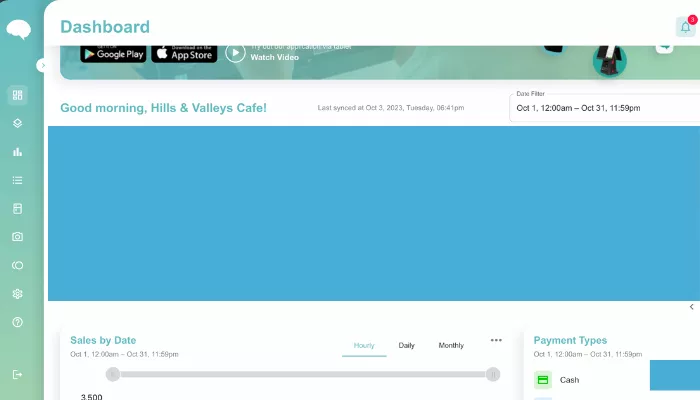
There are also alternatives to POS, such as a cash register or manual recording system to track every sale made during the day.
See what fits your cafe, but I highly recommend investing in a POS to efficiently track numbers and monitor daily sales when you’re not around the cafe.
2. Categorize Sales (optional but helpful)
This step is optional, and you may skip this. But if you want to be more detailed about the sales numbers, you can break down sales into categories such as beverages, pastries, and merchandise.
This way, you can determine which products are popular (best-selling for the month) and profitable.
3. Tally Up Total Sales
To get the total sales, you sum up the total amount from all sales transactions. This includes all transactions from every product you sell within the day. This will give you the gross sales for the day.
4. Deduct Returns/Refunds
Check if there were any returns or refunds during the day. If you have delivery apps like FoodPanda and GrabFood, you can check your emails for any refunds within the day.
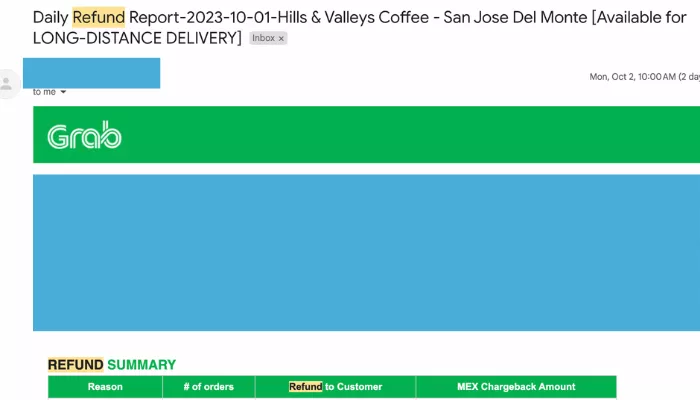
Deduct these amounts from the gross sales to get the net sales.
5. Factor in Discounts and Promotions
If you offer discounts or promotions, account for these reductions in your daily sales.
See the exact amount of each discount and promotion. This would give you the right amount of daily net sales.
6. Include Taxes
Cross-check that taxes are included in your sales amount among your POS and cash registers.
For the most part, taxes are shown separately in receipts, so adding them can quickly get the total sales.
7. Review Cash and Non-Cash Transactions
Review the total for each type if you accept multiple payment methods (e.g., cash, bank accounts like BPI, credit card, Gcash). This ensures your cash drawer matches your recorded cash sales and all electronic transactions have been processed correctly.
8. Double check
It is easy to lose track of the accurate amount. So, it is always an excellent practice to double-check your calculations. If you’re using a POS system, it could give you a daily sales report that looks like this:
You can cross-reference the total amount from POS with manual counts.
9. Document and Store
Ensure you document everything in your cafe business, including your daily sales. You can use spreadsheets, your POS system output reports, or as simple as a physical ledger.
All these documents you can use for accounting and tax purposes, as well as in tracking business performance.
How to Increase Daily Sales Of Your Coffee Shop?
Now that you know how to compute and track your daily sales, applying some of the best practices to increase daily sales is also essential.
Of course, tracking your numbers is good, but more importantly, you should sustain and grow your cafe business even more.
So, here are five ways to increase daily sales of your coffee shop:
1. Find a location with high foot traffic.
This is primarily applicable for starting cafe owners as they have the freedom to choose a store with good traffic of customers.
An established coffee entrepreneur who wants to expand their coffee shop in other locations (either through coffee franchising or a company-owned system) must be looking for a place with high foot traffic.
2. Build your brand.
In Asian countries, particularly in the Philippines, you’ll find coffee shops opening streets in between.
You need to build your brand to differentiate yourself from other local cafes. Ask yourself, “What makes your cafe uniquely different?”.
By focusing on branding with all your marketing efforts, you gain buzz around your local cafe, acquiring new customers and enticing loyal customers to make additional purchases.
Learning and applying fundamentals and tips on promoting your coffee shop is best.
3. Do competitor analysis.
One of the best ways to increase daily sales is to analyze what your competitors are doing.
This is not to mimic every detail of their business activity but to see their strengths and weaknesses, all while spotting opportunities you can take advantage of.
For instance, one audience group we managed to build stronger and deeper relationships with at Hills & Valleys Cafe - teachers. They usually conduct their meetings inside our cafe, allowing us to get recurring bulk orders every week. It also gives you free word-of-mouth marketing within the campus community.
Here are a few insights you can get from doing competitor analysis:
- Gaining traction on a specific platform or marketing channel your competitors aren’t investing in.
- Targeting a group audience (example above), other cafes aren’t strengthening relationships with.
- Promotional activities that have worked for them that you can innovate better to suit your target audience.
Competitor analysis is critical in enhancing your cafe’s branding and ability to capture a larger market share for your business.
4. Maximize the seasonality of products.
One significant insight in managing your coffee shop is understanding the seasonality of your products. You’ve got a primary menu, but there are seasonal beverages that are best to sell during one season.
For instance, you have a Peppermint beverage, suitable for the Christmas season, and another, a Refresher drink, best for the summer season.
You can maximize these seasonal products by creating promotional campaigns like BOGO to entice early sales for the day.
5. Adjust the pricing on offers.
A coffee shop's day-to-day operations may seem routine, but at times, you don’t take the time to pause, reflect, and evaluate what’s happening in your store.
Adjusting the offers' pricing is a good tip to increase expected daily sales. Remember that you should do it cautiously, as your customers might find that you’re taking advantage of them, which could negatively impact sales.
The best thing is to find the right timing when increasing prices for some of your products. For example, when you see inflation happening in some of the ingredients of your products, it is a good, reasonable way to adjust your pricing.
Announce the price adjustment. It is imperative to do it so your customers would know beforehand - a sign of respect for them as your loyal customers.
Key Takeaways
Knowing your numbers is one of a cafe entrepreneur's incredible, essential abilities. By having a good look at your expected daily sales, you can think of any improvement to do for your cafe operations and sustain to expect even more growth.
Food Franchise in the Philippines Under Php 1 Million
Filipinos have an innate love, which is a growing opportunity for food franchises in the Philippines.
This article will explore the different food franchise options in the Philippines. See what fits you and start your own food business today.
Food Franchise Business in the Philippines Under Php 1 Million
1. Hills & Valleys Cafe Store and Cart Franchise

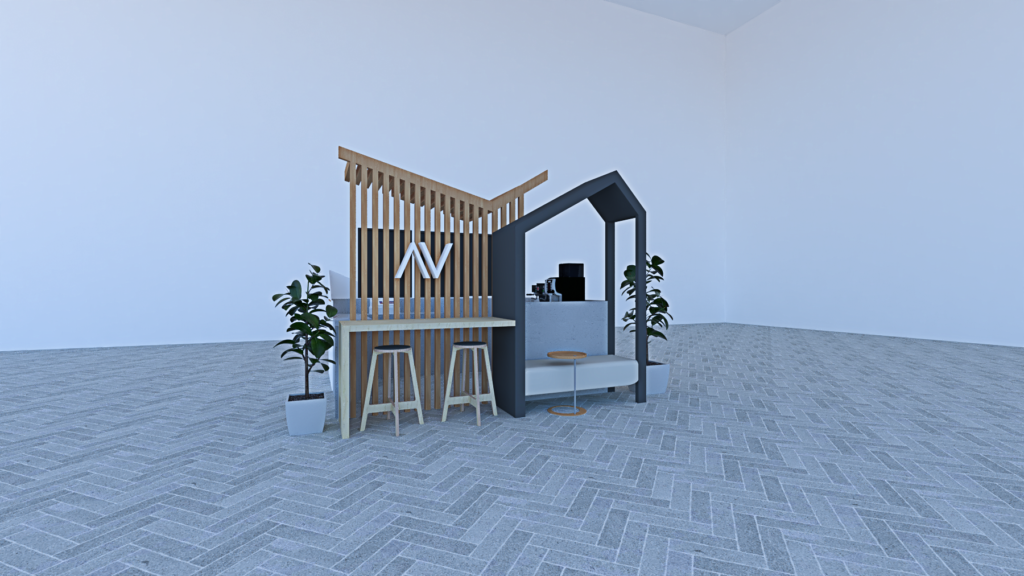
Deluxe Cart
Investment: P495,000
Franchise Inclusions:
- 5 Years Franchise Fee
- Full Construction Cost
- Franchisee Training
- Operations Manual
- Use of Business name and Logo
- 1 Month Worth of Coffee Supplies
- Espresso Machine
- Grinder
- JTC Blender
- Social Media Advertising (worth P3,000)
- Food delivery app application assistance
- POS (1st 6 months Subscription)
For Inquiries:
Mobile/Viber: 0906 232 0168
Email: hillsandvalleyscoffee@gmail.com
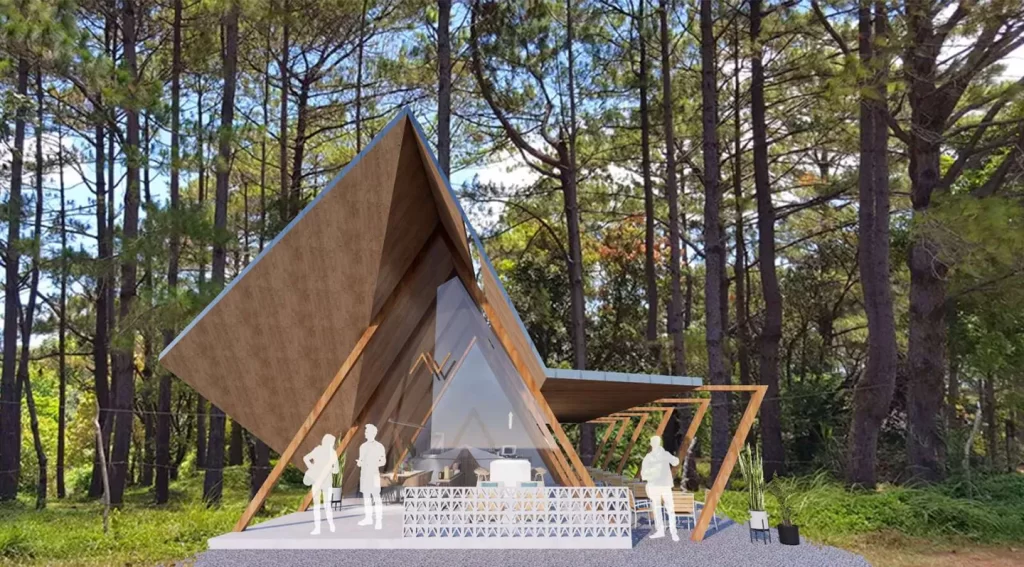
Cafe Fit Out
P495,000 + Construction Cost
Franchise Inclusions:
- 5 Years Franchise Fee
- Franchisee Training
- Operations Manual
- Use of Business name and Logo
- Social Media Advertising (worth P10,000)
- Food delivery app application assistance
- POS (1st 6 months Subscription)
- Espresso Machine
- Grinder
- JTC Blender
- Supplies and Accessories
- 1 month of free supplies
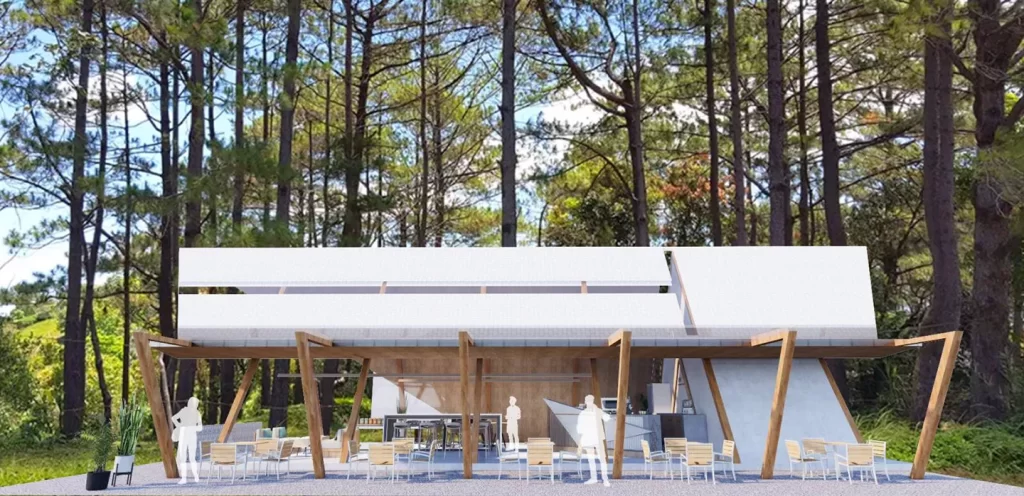
Store
P495,000 + Construction Cost
Franchise Inclusions:
- 5 Years Franchise Fee
- Franchisee Training
- Operations Manual
- Use of Business name and Logo
- Social Media Advertising (worth P10,000)
- Food delivery app application assistance
- POS (1st 6 months Subscription)
- Espresso Machine
- Grinder
- JTC Blender
- Supplies and Accessories
- P70,000 free stock credits
For Inquiries:
- Mobile/Viber: 0906 232 0168
- Email: hillsandvalleyscoffee@gmail.com
About Hills & Valleys Cafe Franchise
Hills & Valleys Cafe, with its welcoming and relaxing ambiance, is an attractive destination for those seeking premium coffee, like their popular Vietnamese and Spanish Lattes, or non-coffee options, such as their Frosted Hills™ drinks. With the tagline, "Your coffee through ups and downs," the cafe is committed to providing high-quality beverages to cater to every taste, served by friendly and attentive staff. Conveniently located near a school, it's a favored spot for students and locals alike, inviting everyone to enjoy their selection of expertly crafted beverages, making it a beloved and respected coffee brand.
2. Bang Bang Bangus Franchise
Franchise Package A
Cost: Php450,000 (VAT Inclusive)
Inclusions:
- Franchise Fee
- Counter with TV Menu (fixed size)
- Kitchen equipment and materials
- Outside lighted signage (1 unit)
- Store opening support
- Marketing support
- Business System
- Training
- Initial Inventory (worth Php30,000)
- Online advertisements (worth Php10,000)
Franchise Package B
Cost: Php550,000 (VAT Inclusive)
Inclusions:
- Franchise Fee
- Counter with TV Menu (designed according to space)
- Divider
- Kitchen equipment and materials
- Ducting
- Outside lighted signage (2 units)
- Store opening support
- Marketing support
- Business System
- Training
- Initial Inventory (worth Php30,000)
- Online advertisements (worth Php10,000)
About Bang Bang Bangus
Bang Bang Bangus emerged as a beacon of Filipino culinary innovation, defying the tides of a global crisis. This thriving street-side sensation offers a unique spin on traditional bangus dishes, delivering crispy, flavored takes on this beloved fish, and has expanded to over 25 locations nationwide, despite the pandemic. Their commitment to high-quality, HACCP-certified fish and diverse menu options is a testament to their resilience and dedication to providing delightful dining experiences.
3. Potato Corner Franchise
Franchise Options:
- Food Cart: PHP 200,000
- Kiosk: PHP 400,000
- In-Line Store: PHP 500,000
- School Cart: PHP 145,600.00
- Standard Cart: PHP 263,200.00
- Customized Store: PHP 128,800.00
What's Included in the Package:
- Franchise fee
- Food cart or kiosk
- Training for franchisee and crew
- Essential equipment
- Small wares
- Initial supplies
Payback Period: Approximately 1.5 years
Location: 869 Katarungan St., Barangay Plainview, Mandaluyong City, Philippines
Contact Information:
- Phone: (02) 534-5845 / 534-5846
- Email: iwantfranchise@potatocorner.com
About Potato Corner
Potato Corner is a prominent food cart chain originating from the Philippines, renowned globally for its flavored fries and serving as a popular entry point for aspiring entrepreneurs. Since its inception in 1992, the franchise has expanded into numerous settings, including malls, schools, hospitals, and tourist destinations worldwide.
Notably, it has achieved significant recognition over the years, earning accolades such as the Franchise Excellence Hall of Fame Award and the Global Franchise Award, solidifying its status as a cherished brand and a lucrative business venture.
4. Master Siomai
Initial Investment: ₱280,000
Inclusions:
- Customized food cart
- Beginning stock of food and paper goods valued at ₱7,000
- Essential equipment including a steamer, a chest freezer, and an acrylic plastic juicer
- Kitchen utensils and plasticware
- Staff uniforms
- Supplies for cleaning
- Promotional materials and more
Reach out for more information:
- Email: inquiry@mastersiomai.ph
- Phone numbers: 8709-5288 / 8709-0901
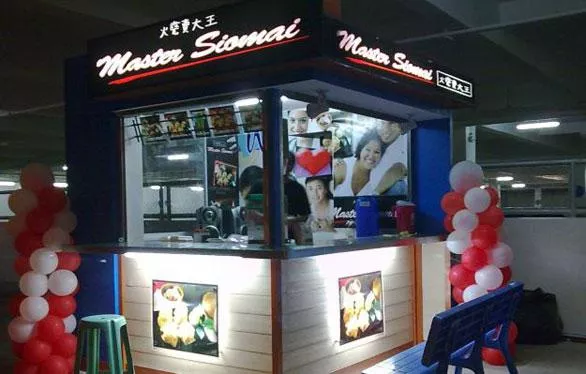
Source: iFranchise
About Master Siomai
Established in 2007, MC Master Siomai Hut, Inc., formerly Masterrific Foods, has evolved into the leading Siomai manufacturer and distributor in the Philippines, boasting over 900 outlets nationwide. The company's dedication to quality and safety, exemplified by its GMP, Triple "AAA", and HACCP certifications and innovative technologies, has allowed it to cater to various tastes and budgets, thus achieving both commercial success and customer satisfaction.
5. Hong Kong Style Fried Noodles & Dimsum Food Cart Franchise
Initial Investment: ₱165,000
Inclusions:
- Food cart
- Required equipment and utensils
- Essential small wares
- Initial batch of product supplies
- Training and orientation for operating the franchise
- Assistance with site selection and grand opening
- Crew uniforms
- Complimentary food cart delivery within Metro Manila
Contact Details:
- Email: apgf001@yahoo.com
- Landline: 8343-0536
- Mobile: 09673159583 / 09228307611
About Hong Kong Style Fried Noodles & Dimsum Food Cart Franchise
Founded by Angelito Marcelino and Jo Ann Buenaventura in 2000, the Asia Pacific and Global Franchising Corporation (AP & GF Co.), initially a restaurant named Lin-Shin Noodles & Dimsum, has grown into a successful franchise model in the Philippines, with its HK Style Fried Noodles brand boasting over a hundred outlets. Recognized on national TV programs and awarded for its excellence, AP & GF Co. continues to thrive by offering customizable Hong Kong-style fried noodles from its food carts.
6. Fruitas Franchise
Minimum initial investment: PHP 300,000
Additional costs: 5% royalty fee and 1.5% advertising fee
Franchise package includes:
- A food cart
- Initial inventory
- Required equipment and supplies
- Training for franchisee and crew
- Marketing materials
- Assistance during the opening
- Contract length: 2 years
- Estimated period to recover initial investment: 1.5 years
Contact details:
Email: franchise@fruitasholdings.com
Phone: 330-2889 / 0926-9888988 / 0939-1010101
About Fruitas
Fruitas Holdings, Inc. achieved success by offering fresh and affordable products to the middle class. Their strong internal research and development, marketing team, and supply chain enable them to deliver high-quality products. Additionally, their expansive store network, facilitated by franchising, has made them a leader in the food cart industry in the Philippines, thanks to their proven business concepts and robust support systems in logistics, operations, product development, and HR.
7. Minute Burger Food Franchise
Initial Investment: ₱290,000 (cost-efficient franchise package)
What's Included in the Package:
- Franchise fee
- Stock bond
- Site processing fee
- Licensing to operate two outlets, among others
Duration of the Franchise Contract: 4 years
Average Time to Recuperate Initial Investment: Between 18 to 24 months
Contact Details:
- For Luzon inquiries, call (02) 8776-7740 or 09063926610
- For Visayas inquiries, dial (032) 345-4053 or 09173297534
- For Mindanao inquiries, reach out to (082) 244-0191 or 09174790884
About Minute Burger
Minute Burger has been a successful franchise business for over 30 years, offering customers delicious and affordable products in clean and well-made stores. With a focus on innovation and product development, they ensure high-quality ingredients and continuously improve their offerings. Additionally, their commitment to staying relevant is reflected in their updated store standards, supported by regular visits from a dedicated team to maintain consistency across their network of franchises.
8. Waffle Time Food Cart Franchise
Initial Investment: ₱250,000 with an additional ₱50,000 as a security deposit
Inclusions:
- Franchise fee
- A food cart fully equipped with necessary tools
- Comprehensive training for the franchisee and crew
- Crew uniforms and more
- Estimated Time to Regain Initial Investment: Ranges from 6 to 12 months
Required Space for Setup: Minimum of 4 square meters
Ways to Get in Touch:
- Send an email to customerservice@waffletime.com
- Reach us by phone at 642-1870, 584-3704, 477-2468, (033) 335-0935, or 335-0026
- Alternatively, contact us via mobile at 09338514522
About Waffle Time
Waffle Time Incorporated, the pioneer in freshly-baked waffles served in carts, has become a well-established name in the food kiosk industry over the past twenty years. They offer a wide selection of quality waffles with delicious fillings, freshly baked on-site at affordable prices, catering to diverse customers globally.
9. Famous Belgian Waffles Food Cart, Kiosk, or Counter
Investment: Ranging between ₱550,000 and ₱730,000
The Franchise Package Includes:
- Access to the established business operating system
- Pre-operational training and orientation for the crew
- Support during the grand opening
- Ongoing guidance from the franchisor
- Assistance with store setup
- Evaluation of site and help in securing a lease, and more
Length of Franchise Agreement: 3 years (with a possibility for renewal)
Space Requirement for Franchise: Between 3 to 8 square meters
Ways to Connect for More Details:
- Email us at famousbelgianwaffles@gmail.com
- Call our landline at 8425-2591
- Get in touch via mobile at 09175594318
About Famous Belgian Waffles
Famous Belgian Waffles, established in 2012, gained popularity with their freshly baked goodies and the enticing aroma that captivated millions of people. In just five years, they expanded to over 500 branches, including one in San Diego, California, offering affordable, high-quality waffles. Recognized as a promising franchise, Famous Belgian Waffles received accolades from the Department of Trade and Industry and the Philippine Franchise Association, solidifying its position.
10. Bibingkinitan Food Cart, Kiosk, or In-line Store
Initial Investment: ₱300,000 (bounce back franchise package)
What You'll Receive in the Package:
- Franchise fee for one year
- Essential small wares
- Key equipment like an oven, coffee brewer with a glass decanter, and a chest freezer
- Initial batch of stocks
- Uniforms for the crew
- Marketing materials
- Custom cart design and fabrication
- A point of sale system, among others
How to Reach Us for Further Information:
- Send an email to franchise@foodasia.com.ph
- Call us on the landline at 846-4646
- Or, dial our mobile number: 09175846172
About Bibingkinitan
Bibingkinitan, a proudly Filipino brand, has revitalized interest in native delicacies amidst the popularity of doughnuts, French fries, and burgers, effectively demonstrating the culinary richness of the Philippines to the world. With over 300 stores nationwide, the brand is recognized as one of the top ten food carts, attracting a broad customer base with its freshly baked mini bibingkas and renowned Barako coffee.
11. Brownies Unlimited Food Cart Franchise
Initial Investment: PHP 920,000 as a minimum investment
Space Necessity for Setting Up: A minimum of 4 square meters
How to Connect for More Information: Email us at franchise@browniesunlimited.com
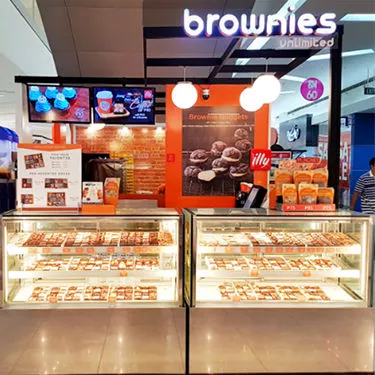
About Brownies Unlimited
Brownies Unlimited, established in 1989, initially offered four types of brownies, a variety that has since expanded to eleven indulgent flavors as the company grew. Alongside its diverse brownie selection, the company also broadened its product range to include cupcakes, meringues, and silvanas. As of 2018, Brownies Unlimited operates over 58 company-owned branches nationwide, proudly delivering homemade, preservative-free products from the finest ingredients.
12. Lydia’s Lechon Kiosk Franchise
Initial Investment: PHP 750,000 as the minimum initial outlay
What's Included in the Franchise Package:
- Franchise fee
- Use of the trade name
- Comprehensive training for the franchisee and crew members
- Assistance during the grand opening
- Ongoing marketing support, among others.
Estimated Time to Recover Initial Investment: Roughly 16 months
Space Needed for the Kiosk: A minimum of 8 square meters
How to Contact Us for Further Details:
- Email us at lydiaslechon@yahoo.com
- Call our landline numbers: 939-1221 or 939-4665
About Lydia’s Lechon
Lydia's Lechon, a market presence for over five decades, has grown from a small stall in Baclaran to over 20 stores in Manila, renowned for serving the best charcoal roast lechon and other iconic Filipino cuisine. The brand aims to touch all generations of Filipinos, striving to bring everyday happiness and establish itself as a daily culinary choice. Starting humbly beside the Our Lady of Sorrows Church, Lydia's Lechon, under the dedicated leadership of its founders, Ms. Lydia and Benigno de Roca, now envisages leading the country's lechon restaurant sector with 57 outlets and a revenue of 1 Billion pesos by 2022, bolstered by modern technology and integrated systems.
13. Lot’s a Pizza Food Cart Store
Minimum Initial Investment Required:
- For a Stall: PHP 450,000
- For a Cart: PHP 550,000
- For a Depot: PHP 650,000
- For a Full Store: PHP 850,000
What's Included in the Franchise Package:
- Franchise fee
- Security deposit
- Use of the trademark
- Costs for construction
- Comprehensive training
- Equipment and utensils
- Ongoing marketing support, and more
Estimated Time to Recoup Investment: Ranges between 1 to 2 years
Ways to Reach Us for More Information:
- Send an email to franchise@lotsapizza.com.ph
- Call us at 873-8435 or 873-8414
About Lots’a Pizza
Lots'a Pizza, initiated by a husband-and-wife team in the 1980s selling various food items in Green Hills, discovered a lucrative opportunity at San Beda College (Mendiola), establishing their pizza business. Distinguishing itself through the use of top-quality ingredients supplied by the Philippines' major food brands and a pioneering inventory and ordering system supported by Globe Telecom, the company aims to offer affordable pizzas, making it a standout in the nation's food industry. With a network of 204 outlets nationwide, including 50 company-operated and 154 franchised stores extending from Northern Luzon to Southern Luzon and Metro Manila, Lots'a Pizza has established a substantial market presence.
14. Mr. Softy Ice Cream Food Cart or Kiosk Franchise
Investment: Ranging from ₱300,000 to ₱495,000
Included in the Franchise Package:
- Franchise fee
- Machine (optional)
- A standard cart or kiosk
- Initial batch of inventory
- Security deposit, and more
Space Necessity for the Franchise: A minimum of 3 square meters
Ways to Connect for More Details:
- Email us at franchisingmrsofty@gmail.com
- Get in touch via mobile at 09176776389
About Mr. Softy
Mr. Softy, the pioneering soft-serve ice cream company in the Philippines, was launched in 2000 by Victorino Perea, a former CFC Corporation's Presto ice cream sales manager after he brought a soft-serve machine from the USA. Recognizing an innovative business opportunity, Perea and his family opened their first store at the Sta. Elena Public Market in Marikina initially offering just five flavors due to their single nozzle machine. Through a commitment to quality, excellent service for franchisees, and a friendly, expert approach to business, Mr. Softy has thrived and aims to continue its growth into the future.
15. Shawarma Shack
Starting Capital: An investment ranging between ₱640,000 and ₱3,090,000
Space Necessity for Setup: At least 4 square meters
How to Reach Us for More Information:
- Send an email to franchising@shawarmashack.ph
- Call us on mobile at 09190793774
About Shawarma Shack
Shawarma Shack, the original 'Buy 1 Take 1' Shawarma brand in the Philippines, started as a single food stall in 2015 in Divisoria, a renowned commodities market in Manila. Despite its modest beginnings, through a story of perseverance and entrepreneurship, it has significantly influenced the country's franchising industry, now boasting over 700 franchised outlets nationwide.
16. Citrus Zone Franchise
Franchise Fee:₱120,000
Complete Setup Package: Costs between ₱290,000 and ₱350,000
What You'll Receive in the Package:
- A cart equipped with necessary juicing tools
- Uniforms for crew members and comprehensive training
- Initial stock of inventory, among other benefits
Space Requirement for Setup: Anywhere from 4 to 6 square meters
How to Connect for Further Details:
- Email us at partners@citruszonerefreshment.com
- Reach out via landline at (02) 782-7756 or 782-5923
- Alternatively, call our mobile at 09063856785
About Citrus Zone
Citrus Zone Refreshment was established as a response to the rise of fast food and junk foods, with a mission to promote a healthier lifestyle by providing freshly-pressed juices. It ensures the maintenance of fruits' freshness and nutritional value, offering on-the-go, easily accessible fresh fruit beverages for consumers anywhere and everywhere.
17. Monster Wings
Pricing for Different Packages:
- Standard Cart: ₱350,000
- Island Kiosk: ₱500,000
- Inline Kiosk: ₱500,000
How to Connect for More Information:
- Dial our contact number: 0917 628 9567
- Send us an email at franchise@monsterwingsph.com
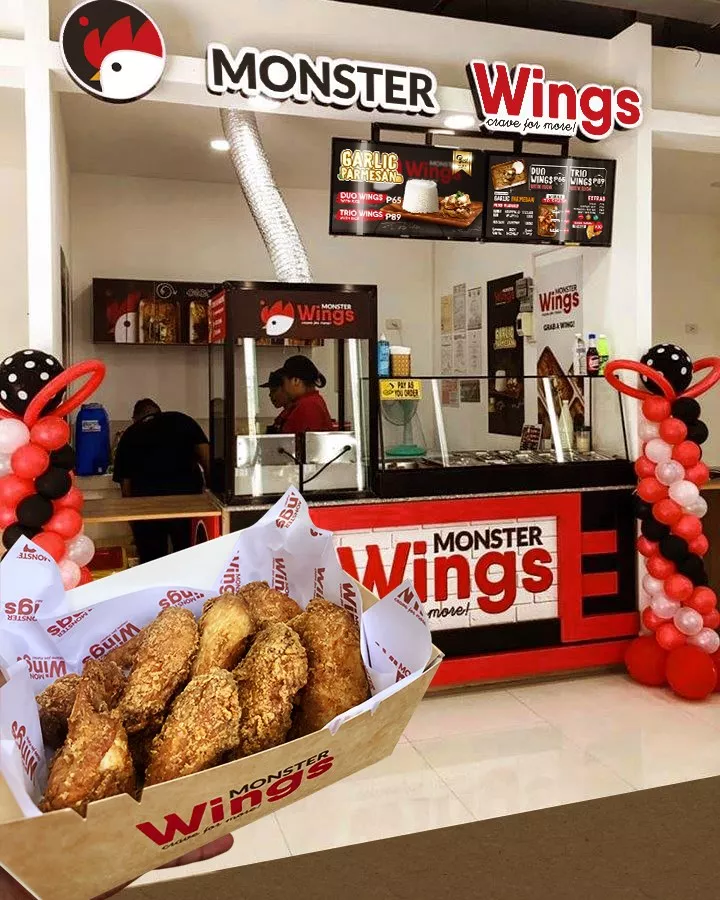
About Monster Wings
Monster Wings, which evolved from a family food cart fabrication business twenty years ago, is now a premier provider of high-quality food cart franchise businesses in the Philippines. Launched in December 2014, the creators behind Food Negosyo aim to assist Filipinos in establishing their own businesses by offering an affordable, profitable, and reliable franchise model with easy management, free training, and fostering a positive franchisee-franchisor relationship. Committed to every aspect of the business, from chicken quality to robust marketing plans, Monster Wings offers an array of crispy, tender, and flavorful chicken wings, creating an experience that brings families together, much like the business has done for its owners.
18. Turks
Requirements for Franchising:
- Current images of the proposed location
- A detailed location map and notable landmarks
- A valid form of identification
- Clearance from the local Barangay
- An official certificate from your bank
- Bank statements from the past three months
- Employment certificate (if you are currently employed)
- If a business owner, provide your company profile and SEC Registration
- If applicable, an offer of lease
How to Reach Us for More Information:
- Send us an email at marketing@turks.ph
About Turks
With over 15 years of operational experience, Turks is a leading and profitable shawarma brand recognized by major shopping malls nationwide. The brand maintains high customer satisfaction through a top-tier commissary that ensures consistent product quality. Since opening up for franchising in 2016, Turks has seen significant growth, with over 600 branches and 183+ franchisees across the country, and continues to expand rapidly.
19. Siomai House Food Cart Franchise
Startup Capital Required: ₱350,000 initial investment
What the Package Offers:
- Comprehensive training
- Ongoing operational support
- A food cart
- Necessary equipment
- Initial batch of supplies
- Uniforms for crew members
- Marketing materials, among other things
Duration of Contract: A period of 3 years
Estimated Time to Recoup Your Investment: Typically between 6 and 18 months
How to Reach Out for More Details:
- Send us an email at emailus@siomai.house
- Or call our landline at 8709-6237
About Siomai House
Siomai House, now one of the most popular siomai brands in the Philippines, traces its roots back to the Bernabest family home in Dagat-dagatan, Caloocan City. The family initially sold empanadas, based on a beloved family recipe, in a booth near the old Caloocan City Hall in 2001. Following an unexpected event at their second booth at North Mall in 2004, they launched Siomai House to prevent competition and ensure their original business, Empanada Especiale, remained unaffected. Today, Siomai House has captured the hearts of Filipinos from all walks of life.
20. Fatboys Pizza Food Cart Franchise
Initial Capital Outlay: Ranges between ₱395,000 and ₱950,000
Included in the Franchise Package:
- A food cart
- Necessary equipment
- Initial stock of food and store supplies
- Comprehensive training for the franchisee and crew
- An operations manual
- Assistance during opening, and more
- Space Required for Setup: At least 4 square meters
How to Get in Touch for More Information:
- Send an email to fatboyspizzapasta@gmail.com or fatboys@fatboyspizzapasta.com
- Call our landline numbers: (02) 358-8021 or (02) 940-9851 or for those in area code 062: 7358-8021 or 7940-9851
- Reach out via mobile at 09615282222 or 09985385530
About Fat Boy’s Pizza
Fat Boy's Pizza Pasta is a thriving destination for lovers of Pizza, Pasta, and Fried Chicken, providing a delectable variety of budget-friendly pizzas, including their reinvented Classic Pizzas. These feature a unique sweet and tangy blend of special tomatoes and spices, topped with Italian mozzarella cheese on their signature original handmade Neopolitan Style crust.
21. Nacho King Food Cart or Kiosk Franchise
Initial Capital Needed: An investment between ₱580,000 and ₱770,000
What's Included in the Package:
- Your own food cart or kiosk
- Necessary equipment
- Training for crew members and their uniforms
- Initial stock of inventory, and more
Contract Duration: A period of 3 years
Minimum Space Required: Between 3 to 4 square meters
How to Contact for More Information:
- Email us at customerservice@nachoking.com
- Call our landline at (02) 8836-5850 or 535-6215
- Reach us via mobile at 09175609336, 09985955270, 09669212696, or 09613198060
About Nacho King
Nacho King, which opened its doors in 1995, is one of the leading providers of nachos in the Philippines, with 100 outlets nationwide and plans for international expansion through franchising. The brand's success is primarily attributed to its high-quality raw corn kernels, which undergo a five-step process from steeping to flavoring, made possible through significant investments in state-of-the-art equipment. Since beginning to franchise in 1998, Nacho King has become one of the most reputable brands in the country, with kiosks in department stores, malls, supermarkets, schools, and other strategic locations.
22. Quickly Franchise
Required Starting Capital: An upfront investment of ₱788,000
Franchise Package Details:
- Franchise fee
- Essential equipment such as freezers, a sealer, counter, and a menu board
- Comprehensive training
- Security deposit
- Initial stock of inventory, and more
Agreement Duration: A 2-year term with the option to renew for an additional 2 years
Minimum Area Required: A minimum of 6 square meters
How to Contact for More Details:
- Send us an email at franchise@quickly.com.ph
- Or dial our landline numbers: 365-2518 or 365-8516
About Quickly
Quickly, a pioneering bubble tea brand from Taiwan, serves a range of healthy, preservative-free beverages made from milk, fruit shakes, and low-fat cream, catering to all age groups. Starting thirty years ago with the innovation of tapioca pearl drinks Quickly has expanded globally, reaching Asia, the United States, Europe, and the Philippines, where it introduced new flavor combinations due to overwhelming consumer response since its launch in Manila's University Belt in 2000.
Invest in a Food Franchise Business Today
In the dynamic sphere of the food franchise the Philippines has so vividly cultivated, the unique blend of tradition and innovation continues to inspire and drive growth. As we've navigated through the diverse landscape of this sector, it's clear that the industry's potential is vast and rich, with countless opportunities for aspiring entrepreneurs.
Whether it's local flavors presented with a modern twist or international cuisines reimagined with a Filipino touch, this vibrant industry is a testament to the country's resilient spirit and culinary passion. As we continue to explore and experience new flavors, one thing is certain: the food franchise in the Philippines will always be an exciting and promising journey, offering many delicious possibilities.
Food Franchise Philippines
What are the top 10 food franchises Philippines?
The top 10 food franchises in the Philippines include Hills & Valleys Cafe, Bang Bang Bangus, Flavored Bangus Franchise, Frito King, Shawarma Shack, Chatime, 12-C4 Bread Station, Chachago, Julies Bakeshop, and Mister Donut. These popular franchises offer a wide range of food options and have a strong presence in the Philippine market. Start your own food franchise with these successful brands. Get more information on their franchise opportunities and start your entrepreneurial journey today.
Which franchise is best for food?
The best food franchise options in the Philippines include Hills & Valleys Cafe, Bang Bang Bangus, Turks, and Shawarma Shack. These popular franchises offer a wide range of food choices and have a strong presence in the country. Consider these options for a successful food franchise venture in the Philippines.
How much is the franchise of Shawarma Shack?
The franchise cost for Shawarma Shack varies depending on the type of establishment. For non-mall carts, the investment ranges from Php 778k to 988k, while restaurants require an investment of 3.1M to 3.5M. Additionally, there is a franchise fee of Php 300k to 500k.
How much is the franchise of Angels Pizza?
The franchise fee for Angel's Pizza is Php 4M + vat, while the total franchise investment is Php 20M+. The required space ranges from 120 sqm to 150+ sqm.
How to Start a Coffee Shop Business in the Philippines: Ultimate Guide for Aspiring Coffee Shop Owners
The coffee shop business in the Philippines is one of the most in-demand businesses an aspiring entrepreneur can start today. It is a booming industry with over 2,752 café and coffee shops (2020 data source from PSA).
We are a country of coffee lovers. Nine out of 10 Filipino households consume coffee regularly. And total coffee consumption in the Philippines in 2020 alone was about 3.3 million 60-kilogram bags.
These speak volumes of the enormous potential of starting a coffee shop business.
Before jumping into the step-by-step guide on how to start a coffee shop business, let's first see why you want to venture into this million-peso industry.
Why Start a Coffee Shop Business?
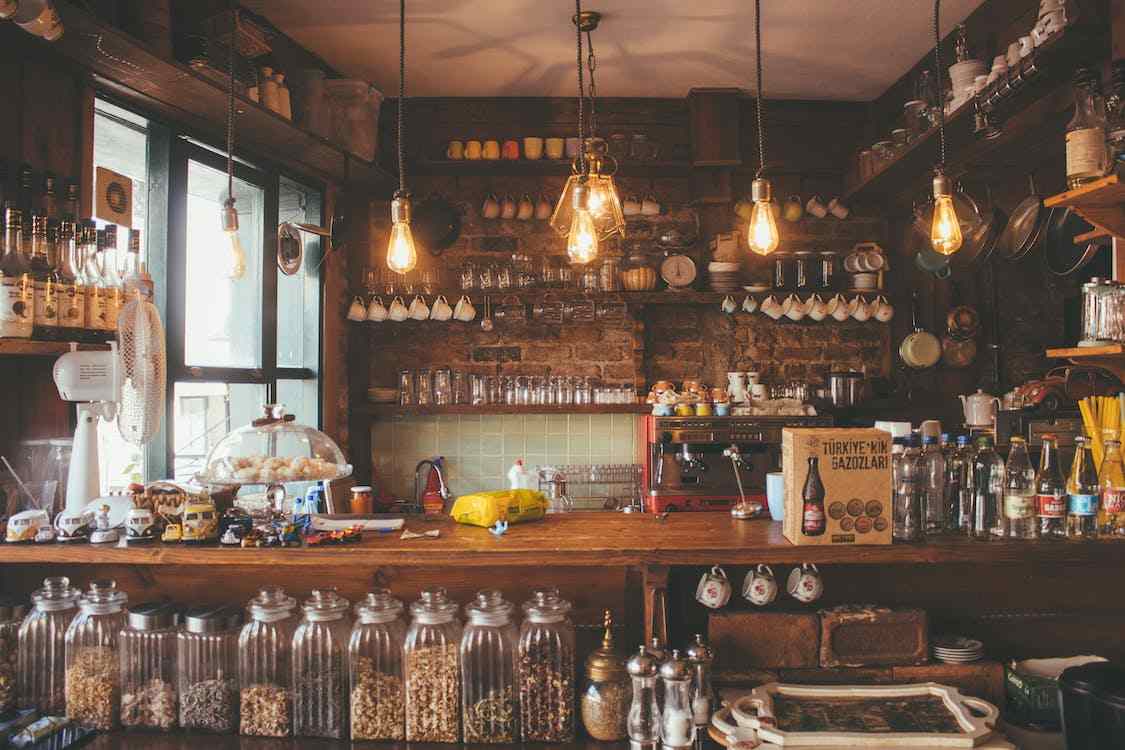
Like any business, you first start by defining your purpose.
If you know your purpose, you will quickly learn the nitty-gritty of starting a business.
In our survey of aspiring coffee entrepreneurs and franchisees on why they start a business, we summarize them into five primary reasons. Here are as follows:
Be An Entrepreneur
The majority of the people we surveyed want to experience dreamt of being entrepreneurs. They aspire to lead teams, make calls for important decisions, and leave a legacy through their business.
Increase More Income
Financial stability is also another reason why people start a coffee shop business. Most people want another income stream while working full-time in their corporate job. No hassle for them as they can have someone work in the industry.
Positively Impacts The Lives of Others
There is no better thing than providing other people with jobs. Giving others an opportunity to make an income is a good source of happiness and one that's meaningful in your own life.
Unleashing Your Creativity
Maybe, you're a barista from your previous coffee business. You may want to explore more creative opportunities for your career - having your coffee shop is an excellent way to unleash your barista skills. You can create different beverages based on your taste and preference and make them good on a menu.
Turning Your Dream into Achievement
You dreamt of owning a coffee shop. Hearing success stories of coffee shop owners is one thing. On the other hand, you probably have tasted good coffee, and it intrigues you to start a coffee shop business. That desire to turn your dream into a reality is your primary reason to create one.
You Get To Be A Part of Coffee Culture
The coffee culture here in the Philippines is interesting. Supplies, manufacturers, small coffee retailers, and baristas gather at conventions and seminars to learn more about each others' best practices and the latest coffee industry trends.
By owning a coffee shop business, you become part of a coffee culture, helping each other grow in their business endeavor and making society a better place.
Flexibility For Your Family
Who doesn't want flexibility? That freedom of time and money you can invest in your loved ones is precious. Anyone would want to sacrifice just to have it in their lives.
As a coffee shop owner, you can experience a flexible time when you have systems and processes in place. You can grow your café while having more time with your family.
Identify your reason for starting a coffee shop business. Be it your source of courage and determination as you grow your business.
The best part is learning the steps to starting one.
How to Start a Coffee Shop Business Philippines (7 Simple Steps)
In this section, we'll go through the exact steps on how to start a coffee shop business in the Philippines.
I've taken the Filipino context to suit your needs as an aspiring coffepreneur. While we provide basic coffee business principles that apply when you start a café in other industries, you'll find most of the actionable tips applicable in the Philippines.
1. Decide on a Budget
The first capital in any business is financial capital. Knowing your numbers, you can prepare well for any expenses you'll incur as you start your coffee shop business.
What specific budget in mind do you have? It is best to start this conversation with yourself if you're going solo, or if you have a family, best to discuss it first with your spouse.
How much are you willing to invest in a coffee shop? Set the amount and write it on paper. You may not have it now, but you can save money every month to reach your target budget.
How much capital is needed for a coffee shop?
It depends on whether you want to start your coffee shop brand (startup) or franchise an existing coffee shop business.
In most cases, you need a higher budget when you franchise a coffee shop business than when you create your own. There are franchise fees involved when franchising a business.
Net, you must decide what route to go: startup or franchise.
2. Choose Between Coffee Franchise Or Starting Your Own Brand
Once you have decided on a budget, your next step is to choose between coffee shop franchise in the Philippines or starting your own brand.
Both have benefits and drawbacks, which you must weigh to see what fits your needs and goals.
Coffee Shop Franchising
This is the most common type of coffee business, given that most aspiring entrepreneurs want a brand with existing systems in place. They don't have to worry about starting from scratch. Instead, they can rely on the coffee franchisor for operations, marketing, and business support.
Here is a contrast of the effects of coffee franchising in the Philippines:
Benefits of Coffee Shop Franchising
Established Brand Reputation - By joining the franchise family of a popular coffee shop, you can benefit from the reputation and brand recognition in the local market. This is best as marketing your product and increasing daily sales for your coffee shop business will be easy.
Proven Business Model - The coffee shop franchise has a successful business model that has been tested in the market. This reduces your risk of failure when you jump into a business venture.
Training and Support - The best coffee shop franchise in the Philippines offers comprehensive training and ongoing support to its franchisees to make their operations run smoothly. With business support, coffee franchisees are more confident in leading their baristas and conducting their operations properly.
Scalable Marketing and Support - With brand recognition and a good reputation, coffee franchisees can benefit from their franchisor's national and regional marketing and advertising campaigns. All benefits from their marketing campaigns can affect the sales generated from every coffee branch.
Drawbacks of Coffee Shop Franchising
High Initial Investment - Starting a coffee franchise requires a higher upfront investment, as it includes franchise fees to pay for using the trade name and all of its products. It is not negative, as you'll add only more to the tested business model the franchisor has made over the years.
Royalty Fees - Some coffee franchising agreements have franchisees pay their franchisor ongoing royalty fees, ranging from 3 to 8% of the monthly gross sales. It is best to ask for this percentage from your potential coffee franchisor.
Limited Control Over The Business - Franchisees are required to operate their business within the boundaries set by the franchisor. Franchise agreements have guidelines and standards that may limit your flexibility as a coffee franchise. For example, in most cases, you can't simply add any products to the menu, as the franchisor himself will provide new products for their coffee franchises.
Restrictions on Location and Territory - Franchisees may be restricted from operating a business in a certain location so as not to compete with similar branches. However, you can agree with your franchisor on the number of franchised branches you want to put up in specific areas.
Hills & Valleys: Best Coffee Shop Franchise in the Philippines

If you're considering franchising a coffee shop in the Philippines, Hills & Valleys may be a great option. Here are some reasons why:
Proven Profitable System: Hills & Valleys Coffee has a proven track record of success in the coffee industry. By offering affordable yet high-quality coffee beverages, you can attract and retain a solid customer following for your business.
Targeted Market: Hills & Valleys Coffee focuses on serving the rural markets that other expensive competitors may not be catering to. This makes it a strategic choice for entrepreneurs looking to tap into these markets while being located in high-traffic areas.
Holistic Approach: Hills & Valleys Coffee offers a holistic approach to franchising as one of the best coffee franchises in the Philippines. In addition to sharing our knowledge, we provide skills training for your staff, including barista training, and help you market our best-selling products through an effective marketing strategy.
By becoming one of our franchisees, you will receive support every step of the way, from training and marketing to ongoing assistance in running your business.
Startup Coffee Shop
This is another route that you can take if you want to start a coffee shop business. There are many benefits of doing so, while a list of drawbacks to balance it out.
Benefits Of Startup Coffee Shop
Creative Control. As a startup coffee business owner, you have complete creative control over the menu, branding, and the entire direction of your business. You can decide where your next branch will be and what type of decor and coffee theme you wish to create. All this is one primary benefit of a startup coffee business.
Flexibility. This is related to the first benefit but more to the constraints of a franchise agreement. In a startup coffee business, you can experiment with new products, menu items, and even the latest marketing strategies to find what works best for your business.
Lower initial investment. Starting a coffee business from scratch can be less expensive than getting a franchise of a popular brand. Depending on the size and scope of your operation, you can choose a more affordable option that fits your budget.
Strong Customer Relationships. Given that you're starting, you can build a loyal customer base by implementing personalized service options and creating a unique atmosphere inside the cafe.
Potential for Higher Profits. A startup coffee business has the potential to generate higher profits as you don't have to pay royalty fees to your coffee franchisor. You can even put new branches in your store without paying additional franchise fees. All these can lead to decreasing the cost and getting more profit for your coffee business.
While there are benefits to starting your own coffee business, there are also drawbacks you have to consider, mainly:
Drawbacks of Startup Coffee Shop
Lack of Brand Recognition: At the start, you have to put a hundred percent effort into building your brand by establishing a customer base from the ground up. This may be challenging, but you can build brand awareness for your startup coffee business with effective marketing strategies.
Limited support and resources: If you're a sole proprietor, this is even more challenging as there is only one mind thinking about what to do in your operations, marketing, and other important things in running the business. You don't have access to the resources and support offered by a larger franchise network.
Higher risk of failure: Starting a business from scratch involves more risk than getting a franchise. There is no proven track record or business model you can replicate, which means you'll have a 50/50 chance of succeeding in a startup cafe.
Limited Bargaining Power: You also have to build relationships with suppliers from scratch, which is crucial in lowering the cost of goods sold. If you can negotiate better, you can have lower operating costs, which means higher profit for your business. Otherwise, supply costs can eat up largely your profits.
Time-intensive: Starting a coffee business requires significant time and effort, from looking for the right suppliers to creating a menu and marketing your brand. All these are necessary to ensure you're likely to succeed as a coffeepreneur.
Types of Coffee Shop Businesses
Whether pursuing a franchise coffee shop or starting your coffee business from scratch, you need to identify the type of coffee shop business that suits your preference, style, and taste.
Coffee Bar, Cart, or Kiosk
A coffee bar, cart, or kiosk is a small, compact coffee shop offering customers grab-and-go beverages. These coffee shops are popular in urban areas, airports, and train stations, where people always hurry and need their coffee fixed quickly.
You can choose this type of coffee shop if the location has a fast-moving flow of foot traffic. This means that people are less likely to dine in and enjoy their coffee inside the store. You may not maintain your customers longer as they either rush home or have errands.
Coffee Store
A coffee store is a more traditional coffee shop with indoor seating and a relaxed atmosphere. Customers can sit, enjoy coffee, socialize with friends, or work on laptops. Coffee stores often have a wider selection of food items, such as pastries, sandwiches, and salads.
Choose this coffee type if you dreamt of interacting with your customers, making them feel at home, and creating an atmosphere of true coffee lovers you'd love to serve with your coffee.
Drive-thru Coffee Shops
Drive-thru coffee shops are perfect for customers who are on the go and don't have the time to sit down and enjoy their coffee. These shops offer a convenient way to grab a quick cup of coffee without leaving the comfort of their car.
Some popular coffee brands here in the Philippines, like Starbucks, The Coffee Bean and Tea Leaf, and Dunkin Donut, combine both a coffee store and a drive-thru, making them cater to both markets of people wanting to dine in and on the go.
Pop-up and mobile coffee shops
Pop-up and mobile coffee shops are a newer trend in the Philippines and other Asian countries. These coffee shops, such as farmers' markets, festivals, or special events, are usually located temporarily. They are designed to offer customers a unique coffee experience and often serve specialty drinks unavailable in traditional coffee shops.
If you want to locate your shop in major locations with a wide range of customers, the pop-up and mobile coffee shop is for you. It is also good for anyone who is looking for a lesser cost on their rent.
3. Comply with Legal and Regulatory Requirements
The registration process here in the Philippines can be quite complex, so it's important to be prepared and know what documents you need to secure.
First, if you're setting up a corporation or partnership, you must secure the SEC Articles of Incorporation. This document proves that your business is registered under Philippine laws. You will need to provide documents such as a name verification slip, articles of incorporation, joint affidavit of two incorporators to change the corporate name, and more.
If you're registering as a sole proprietorship, you'll need to get a DTI Registration Certificate, which authorizes you to use your trading name and secures it from being used by someone else.
You will also need to get a BIR Clearance, which is required before you can get other permits. This clearance is issued by the Bureau of Internal Revenue and can be obtained by filling up one of the BIR forms depending on your business type.
You also need to secure a Barangay Clearance, which certifies that your business complies with the local requirements of the barangay where your business is located.
Last, you must secure a Mayor's Permit, also known as a business permit. This permit ensures your business is safe to operate under your city's ordinances. You can only obtain this permit after you've registered your business with DTI and SEC, and secured the necessary clearances.
Remember that compliance with local zoning and building codes is also essential in setting up your coffee shop. You should be aware of the tax requirements for your business. By ensuring you have all the necessary permits and clearances, you can ensure that your coffee shop is legally registered and operating smoothly.
Here are resources you can check out for more references on how to register your business:
- https://www.securitybank.com/blog/how-to-register-your-online-business-in-bir-and-dti/
- https://grit.ph/register-corporation/
4. Learn About Cafe Management
Cafe management is a huge part of running a coffee shop business in the Philippines. There is where you learn about hiring and managing employees, inventory management, bookkeeping, accounting, and maintaining a clean and safe environment.
Let's first start with hiring and managing employees.
Hiring and Managing Employees
The coffee shop is a service business and will require tremendous time to invest resources in your people. They'll be the ones to brew coffee and serve your customers, so it's important to have the right people in your cafe.
In hiring good employees, you must first set the criteria for an employee who works in your coffee shop. You can use the Iceberg Model of Competencies to identify an ideal employee. Competencies include knowledge, skills, social role, self-image, traits, and motives.

Here are some actionable tips for choosing the right barista based on each competency.
Quick note: Set expectations for the required experience you're looking for in a potential candidate. For startup and even franchise coffee shop businesses, you can consider fresh graduates with no skills and knowledge in coffee brewing.
This list below gives you ideas about the competencies you should aim for your baristas for training.
Knowledge:
- Look for applicants who understand coffee brewing techniques and espresso-based drinks well.
- Consider applicants who know different coffee beans and their flavor profiles.
- Give preference to applicants who have some knowledge of the history and cultural significance of coffee.
Skills:
- Look for applicants with latte art experience who can make drinks quickly and efficiently.
- Look for applicants with a strategy for managing multiple drink orders simultaneously.
- Consider applicants who have experience dealing with difficult customers and complaints.
Social Role:
- Look for friendly, approachable applicants who can create a positive customer experience.
- Consider applicants who have experience working collaboratively with other baristas and team members.
- Look for applicants who understand and can represent the coffee shop brand and culture.
Self-Image:
- Look for applicants who can stay calm under pressure and handle unexpected situations.
- Consider applicants who have experience staying organized and efficient during busy periods.
- Look for applicants who have a positive attitude and energy throughout their shifts.
Traits:
- Look for detail-oriented and focused applicants who take pride in their work.
- Consider applicants who are adaptable and able to handle unexpected situations.
- Look for applicants who have a friendly and approachable personalities.
Motives:
- Look for applicants who are passionate about the coffee industry and motivated to learn and improve their skills.
- Consider applicants who have experience staying motivated during slower periods.
- Look for applicants open to feedback and willing to learn and improve continuously.
This list may not be exhaustive, but enough to give you a head start for your exam and/or interview process.
For franchise coffee shops, you mostly get assistance and support when hiring baristas. This lessens the workload you need to start your cafe.
Inventory Management
Inventory management is another critical competency in running a successful coffee shop. This includes managing the supply of coffee beans, milk, syrups, sauces, and other ingredients you need to craft your beverages.
You must also monitor other supplies, such as cups, napkins, straws, and stirrers.
It is important to keep track of supplies and have your own inventory management system and documents to ensure you're not completely running out of stock.
For franchise coffee shops, there is an advantage of having specific inventory management from the franchisor to help you monitor all ingredients and supplies.
Effective inventory management can help organize your supplies, keep track of inventory levels, and avoid waste.
Bookkeeping and Accounting
Bookkeeping and accounting are essential in keeping accurate records of sales and expenses, managing payroll, and paying taxes.
To keep track of sales, you can have Point of Sale software to capture every transaction and its corresponding amount easily. So you can easily export a file whenever you want, such that at the end of every month, to know your gross sales.
At our coffee shop in Bulacan, we use Utak POS, an affordable POS most coffee shops here in the Philippines use for in-store transactions.
For expenses, you can hire a bookkeeper or a professional accountant to help you organize all receipts and track all expenses. This would allow you to focus on other cafe management areas, helping you grow your business further.
Maintaining a clean and safe environment
Customers want a clean and safe environment inside coffee shops. So it's critically important to have a system to maintain cleanliness.
Here are simple tips for maintaining a clean and safe environment post-pandemic:
- Regularly clean and sanitize all surfaces and equipment, including countertops, tables, chairs, and coffee machines.
- Ensure that all food is stored and handled properly and that all staff is trained in food safety and hygiene practices.
- Implement regular hand washing and sanitizing protocols for both staff and customers.
- Use disposable or single-use items, such as paper cups and utensils, to minimize the risk of contamination.
- Provide customers with a welcoming and comfortable atmosphere by maintaining a clean and tidy shop and offering high-quality coffee and food. This can help to build a loyal customer base and attract new customers.
5. Find a Suitable Location and Select the Right Equipment
If you find a great location for your coffee shop business, you win 50% of the battle. The reason is that physical stores in locations where there is medium to high foot traffic get more customers than those in distant areas.
Here are two location points where you can place your cafe to make it a winning coffee shop, even if you're not starting yet.
Best Nearby Locations
Near hospitals/schools/parks
Set up your coffee shop near hospitals, schools, or parks where there is a high volume of foot traffic. Scout the area first and see the flow of potential customers in your target location. The higher volume of foot traffic, the higher chances you can attract more customers and increase your sales.
Inside malls
Malls can be a good location for a coffee shop business as they already have a steady stream of customers throughout the day. However, you need to take note of the sale percentage the mall requires, as it can affect your profit margin.
Purchasing Equipment and Supplies
A huge part of your investment if you decide to start your coffee shop from scratch goes into purchasing equipment and supplies.
This is where you should be most careful, as the right equipment and supplies can affect the quality of your coffee.
Here is the top equipment you'll have to purchase for your cafe:
Coffee brewing equipment: Invest in high-quality coffee brewing equipment that can produce consistent, great-tasting coffee. This could be coffee makers, French presses, and drip machines.
Espresso machines: If you plan to offer espresso-based drinks, invest in a good quality espresso machine. The better your espresso machine is, the better quality of coffee you can make. Example is this list of Starbucks drinks in the Philippines.
At Hills & Valleys Cafe, we prefer to purchase espresso brewing machines.
Some good recommendations for brewing machines are:
- Breville
- La Marzocco
- Nuova Simonelli
- Rocket Espresso
Coffee grinders: A coffee grinder is another essential piece of equipment that helps you grind coffee beans to the perfect consistency for your brew.
Refrigerators and freezers: You'll need refrigerators and freezers to store milk, cream, and other perishable items.
Cups, saucers, and utensils: Don't forget to stock up on cups, saucers, and utensils. Choose sturdy, high-quality options that can withstand repeated use.
Coffee beans and other ingredients: Invest in high-quality coffee beans and other ingredients, such as syrups, to create delicious drinks that keep customers returning.
The Philippines produces several types of coffee beans, including:
- Arabica: This type of coffee is grown in the highlands of the Philippines and is known for its mild, fruity flavor and aroma.
- Robusta: This type of coffee is grown in lowland areas and is known for its strong, bitter flavor and high caffeine content.
- Excelsa: This coffee is grown in the southern part of the Philippines and has a unique flavor often described as fruity and smoky.
- Liberica: This type of coffee is grown in the Batangas region of the Philippines and has a distinctive aroma and flavor, often described as nutty and floral.
In coffee shops in the Philippines, you will typically find a variety of coffee beans available, including blends that combine different types of beans to create unique flavors and profiles.
Marketing materials and suppliers: You'll also need to find suppliers for menu boards, A4 posters, and other marketing suppliers. Finding a good graphic designer to help you with your daily social media content to attract new customers to your cafe is best.
6. Select Your Ideal Coffee Shop Aesthetics and Concept
Your cafe design and theme will determine the atmosphere you want to set for your customers. It is best to choose it based on what your customers want in your city or location. An appropriate cafe design and theme makes it more enticing, plus gives the vibe you're caring for your customers.
There are several popular coffee shop themes in the Philippines, including minimalist, Korean, rustic, industrial, boho chic, indoor garden, and pop culture-themed.
Here is a run-down of what each of these types means for you:
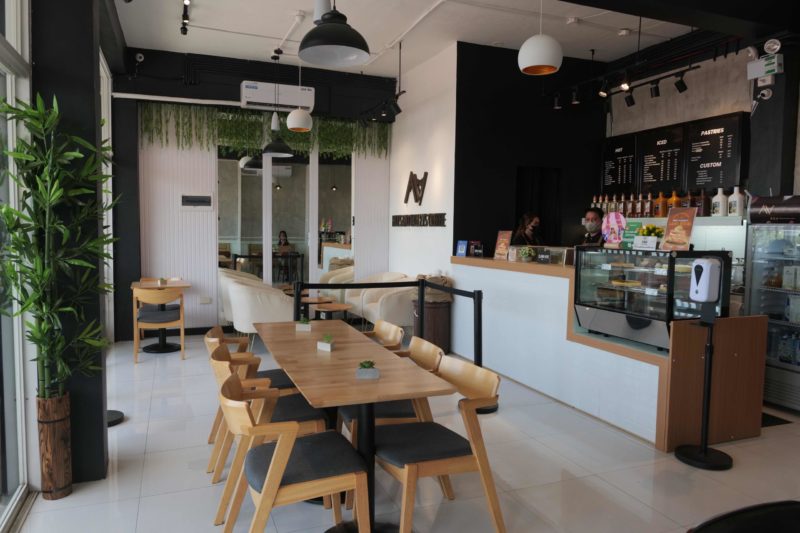
A minimalist coffee shop theme is characterized by clean lines, neutral colors, and simple decor. This cafe type is ideal for customers who want a quiet and calming environment to work or relax in.
Korean coffee shops are inspired by the trendy cafes in Seoul, focusing on minimalist design, pastel colors, and unique food and beverage offerings.
Rustic coffee shops often have a cozy and inviting atmosphere, with wooden furniture, exposed brick walls, and vintage decor.
Industrial coffee shops feature raw materials like concrete and metal, giving them a modern and edgy vibe.
Boho chic coffee shops are characterized by bright colors, bold patterns, and an eclectic mix of furniture and decor.
Indoor garden coffee shops incorporate plants and natural elements into the design, creating a serene and refreshing atmosphere.
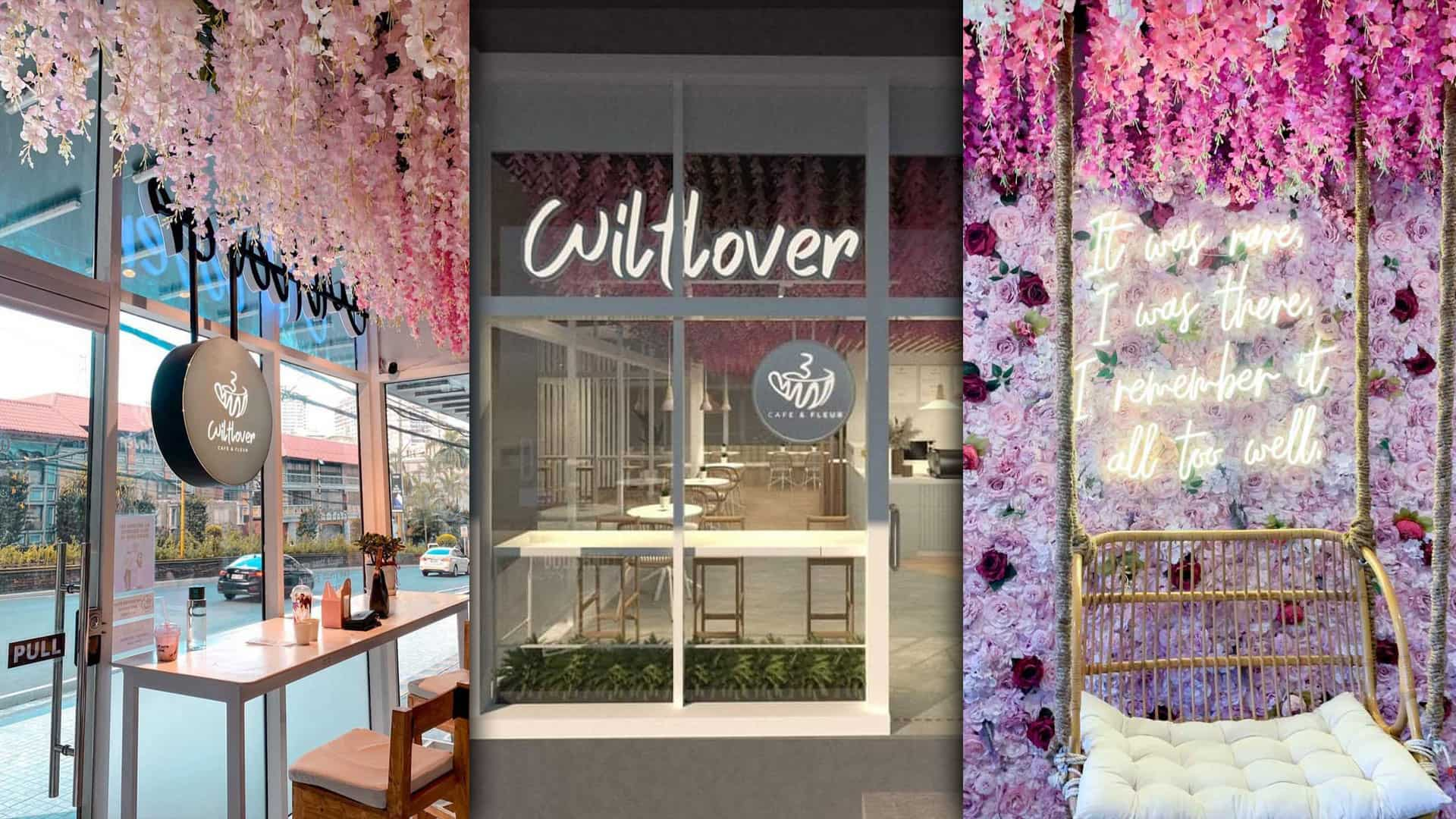
Pop culture-themed coffee shops are perfect for customers who are fans of movies, TV shows, or music. These cafes often have decor and menu items inspired by popular franchises or artists.
7. Understand How Sales and Marketing Work
Sales are the lifeblood of a coffee shop business. Marketing drives new customers to your cafe. These two key business components are essential to growing your coffee business, whether a startup or a franchise.
As an aspiring entrepreneur, you can apply sales forecasting to your business.
Sales Forecasting
Sales forecasting is estimating how much revenue you can expect to generate. Though many variables affect sales, it is still important to have a good sales number in mind to target every month.
Coffee shops typically consider the number of customers served daily, average ticket price, and operating hours to calculate sales.
To calculate profit, coffee shops subtract their total expenses from their revenue. This includes the cost of goods sold (COGS), rent, labor, utilities, and other operating expenses.
Here are more resources to learn basic knowledge about sales forecasting:
Factors That Affect Sales of Coffee Shops in the Philippines
Several factors can impact the sales of a coffee shop in the Philippines.
One primary key factor is location. If a cafe is easily accessible and located in high-traffic areas, you can expect it will have more sales as it attracts more customers.
Another thing to do considers is customer demographics. Coffee shops cater to different age groups or interests and may have different loyal customer bases.
If you have identified your target customer and ensure you're doing the right marketing strategy to appeal to them, you'll get more sales in return.
Lastly, competition. The higher the competition in your location area, the more challenges you may have to attract customers.
Effective Marketing Strategies
You need to promote your coffee shop and attract customers to get more in-store and delivery sales.
There is a misconception for franchise coffee shops that they don't need to do any marketing campaigns. Partly true, given that the main branch or franchisor has an existing marketing team and effective marketing campaigns to promote every brand, including its franchise cafes.
However, it is best to own your franchise store and do the necessary marketing to attract new customers - aligned with your franchisor's overall marketing strategy.
For startup coffee shops, here are some ways to get new customers and entice existing customers to buy more from you.
Social Media Marketing Strategies
Invest in creating social media posts that are appealing to your target audience. You can hire a freelance graphic designer or do it yourself with Canva. Then, write captions that entertains or educates, alongside call-to-actions, to encourage your audience to visit your stores.
Social media platforms like Facebook, Instagram, and Tiktok are some places to publish content to bring more awareness to your brand.
You can invest in Facebook Advertising to push more discount promos and holiday or seasonal promotional campaigns to get more reach in your target area.
In the Philippines, you can use Facebook Ads to get as low as Php10.00 to acquire a customer by sending you a message on your Facebook page.
Customer Loyalty Programs
Customer loyalty programs are another effective marketing strategy as you encourage customers to return to your cafe and make repeat transactions. You can add freebies to every number of purchases they make; this gives your customers a reason to buy more from you.
Live Events
Live music performances are one of the trending and effective marketing strategies of coffee shops in the Philippines. By giving their customers free entertainment and good vibes, they improve their customer experience.
Ask For Google Business Reviews
If you've made a great customer experience, it is best to ask your customers for a review on your Facebook page or, better, on your Google Business.
First, you have to set up your Google Business. You can read this guide to start your own.
You can create an A4 poster with a QR code and/or link to your Google Business review section. Your customers can scan the QR code, go to the link, and write a review about their experience in your coffee shop.
Customer reviews serve as testimonials of the level of experience and quality of products your cafe offers to customers. This brings in new customers when people search for specific keyphrases, looking for available coffee shops within the area (e.g. coffee shop san jose del monte bulacan).
8. Familiarize Yourself With Cafe Operations and Customer Service
Cafe Operations
Cafe operations refer to the various activities involved in running the day-to-day workflow of a coffee shop or cafe.
These include menu planning and pricing, food safety and sanitation, workflow optimization, quality control, staff training and development, and customer experience (more on this topic later).
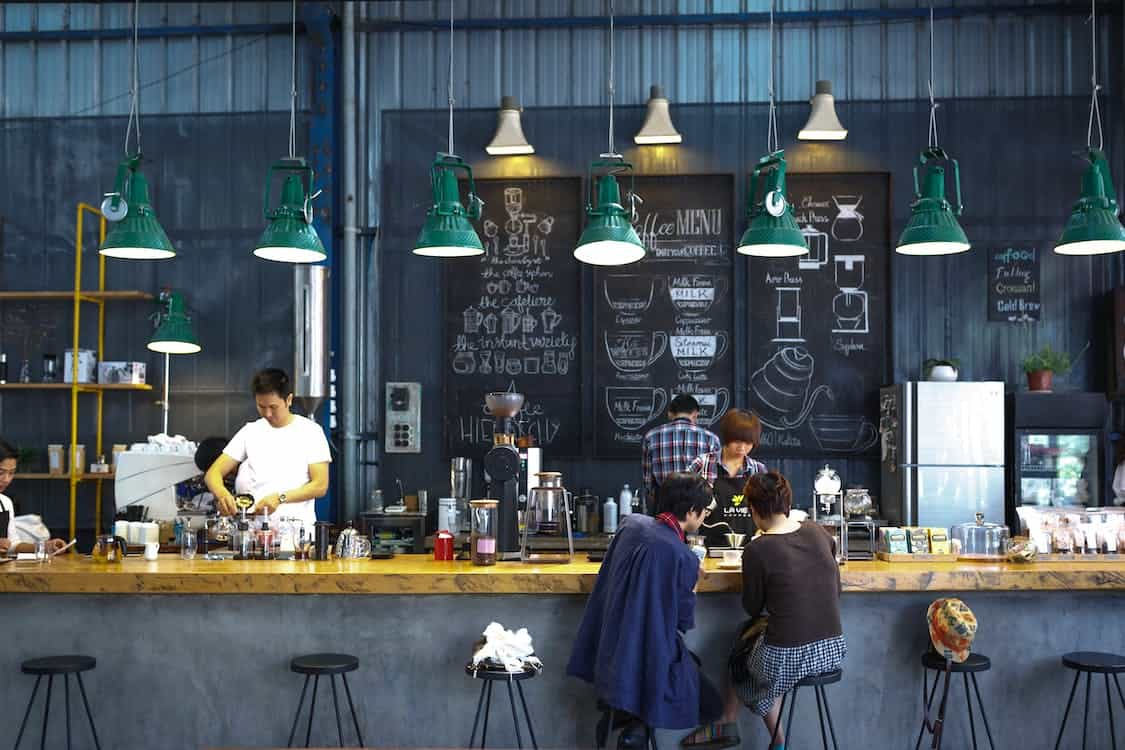
Menu Planning and Pricing
You must offer a range of beverages and pastries catering to your target market's tastes and preferences. This will comprise your menu. Knowing what type of menu and its inclusions is critical to ensuring your customers get the best products from you.
It is best to conduct market research among all coffee shops in the Philippines, as well as upcoming trends in the global coffee scene, to get insights into what beverages and food you should cater to your customers.
Aside from menu planning, consider the pricing of your coffee. Pricing your products affects your monthly profits. So ensure you know what your target product pricing is.
Here is an example of a menu for a coffee shop in the Philippines:
| Item | Price (PHP) |
|---|---|
| Espresso | 90 |
| Americano | 120 |
| Cappuccino | 140 |
| Latte | 150 |
| Mocha | 160 |
| Iced Coffee | 120 |
| Cold Brew | 140 |
| Hot Tea | 80 |
| Iced Tea | 90 |
| Fruit Smoothie | 180 |
| Classic Milkshake | 140 |
| Special Milkshake | 180 |
| Chocolate Drink | 120 |
| Matcha Latte | 150 |
| Chai Latte | 140 |
| Hot Chocolate | 120 |
| Fresh Juice | 100 |
| Bottled Water | 40 |
| Pastry | 60-120 |
| Sandwich | 120-200 |
| Salad | 150-250 |
| Pasta Dish | 200-280 |
| Cake Slice | 100-150 |
Food Safety and Sanitation
For any food-related business like a coffee shop, maintaining high food safety and sanctification standards is critical to success. Look for the basic and advanced relevant regulations and guidelines to protect your customer's health.
Workflow Optimization
Streamline your coffee shop's workflow to serve your customers quickly and efficiently. If you can reduce wait teams, this can increase customer satisfaction and thus, improve their overall customer experience.
Analyze your operations. Check your production areas. What are the things you can improve to remove any inefficiency and things which may be causing delays? Consider rearranging your furniture and equipment to develop a more efficient store layout.
Quality Control
Consistency in product quality is essential in a coffee shop. This is particularly important if you're expanding your coffee shop to other locations, i.e. adding more branches for your startup coffee shop.
You want to ensure all your products meet the same high standards every time. So seek quality control by regularly conducting a taste test of your coffee and other products to ensure they're up to par.
Customer Service and Experience
The coffee shop with the best customer experience wins. Why? It is simply because if your customers feel they're being served well and have the highest level of customer touch and experience, they're likely to return to your store, increasing your overall sales.
So, think of ways how to create a positive customer experience. Consider factors such as ambiance, music, lighting, vibes, and anything else to design your coffee shop well.
You can also engage with your customers and ask for direct feedback, so you know any room for improvements in their customer experience.
It is also important to train your baristas to deal with customer complaints. Not all customers you'll be able to please, so have your staff trained enough to handle complaints effectively and empathetically. Develop a process for resolving issues quickly.
Coffee Shop Success Factors and Challenges
What Makes a Cafe Successful?
What makes a cafe successful is the quality of products and services, atmosphere and ambiance, location and accessibility, and strong customer base.
Let's look at each coffee shop's success factors.
Quality of products and services. The quality of your coffee, pastries, and service will greatly impact the success of your coffee shop. People buy your products, so use high-quality ingredients, invest in quality equipment, and always train your staff to provide excellent customer service.
Atmosphere and ambiance: Create an inviting atmosphere where customers love to enjoy, relax, and return for more. Consider decor, lighting, music, and seating arrangements to create a safe and positive vibe that people will want to invest time in your store.
Location and accessibility: Choose the right location with high foot traffic to attract more customers. Always consider the demographics of your customers and ensure you're hitting it head-on with the proper location.
Strong customer base: Apply the marketing strategies shared earlier to attract new customers and retain your existing customers. By providing customer loyalty programs, live events, and social media promotions, you can create a marketing campaign appealing to your target market.
Challenges Faced by Coffee Shop Businesses
Starting and running a coffee shop business in the Philippines can be challenging. Here are some of the most pressing challenges faced by coffee shop owners.
High competition: High demand for coffee equates to high competition in the number of coffee shops constantly opening up. So you must find ways to differentiate your coffee shop from others in your location.
Rising costs of ingredients and supplies. With inflation and many other factors, the costs for ingredients like coffee beans and milk can fluctuate, impacting your cost of goods sold and profit margins. It's important to regularly review your costs and adjust your prices accordingly to remain profitable.
Customer retention and loyalty: It is not easy to retain customers today. The more options your customers have, the fewer chances it is to get customer loyalty. Creating a solid customer atmosphere and developing new marketing strategies can build a great customer experience and customer base.
Employee turnover: Hiring and training new employees is resource-intensive. And thus, you need to retain your employee as long as possible to reduce employee turnover and training costs.
These challenges can be difficult to overcome, but staying current on current industry trends and best practices can improve your operations and properly set up your coffee for success.
Coffee Shop Philippines Frequently Asked Questions
How much does it cost to open a coffee shop in the Philippines?
Opening a coffee shop in the Philippines can cost around ₱1,250,000 for the shop setup, equipment, and permit, plus about ₱155,000 for monthly expenses like rent, utilities, supplies, marketing, and staff costs.
How to start a small coffee shop business in the Philippines?
To start a small coffee shop business in the Philippines with a low budget, carefully plan your expenses, choose a strategic location, and consider offering specialty coffee or unique blends to attract customers. Consider cheaper alternatives for furniture and equipment, use social media marketing, and establish relationships with local suppliers to minimize costs.
Is a coffee shop a profitable business?
Yes, a coffee shop can be a profitable business. Generally, most coffee shops start to generate profits within the first few years, with sales expected to double by year five. To ensure profitability, managing startup costs, budget contingency funds, and carefully monitoring operations costs in the first year is important.
What qualifications do you need to run a cafe?
There are no specific qualifications required to run a cafe in the Philippines.
However, it can be helpful if you attend training, seminars, workshops, and certifications to have experience in the food and beverage industry.
Is owning a coffee shop stressful?
Owning a coffee shop can be stressful, especially starting it from scratch.
However, with careful planning and proper execution, many coffee shop owners find it to be a rewarding and fulfilling business.
Is coffee a good investment?
Coffee can be a good investment, as it has a high demand and profit margin.
What percentage of cafes fail?
Some studies show up to 60% of cafes fail within the first year. This highlights the importance of careful planning, management, and market research before starting a coffee shop.
Can I run a cafe with no experience?
You can run a cafe with no experience.
However, having enough experience or a business background is important to avoid mistakes and succeed early in running a cafe.
What does a small cafe need?
A small cafe needs basic equipment such as an espresso machine. It also needs a menu, a point-of-sale system, and business permits and licenses to operate legally.
What are the problems in a coffee shop business?
Some common problems in a coffee shop business include high competition, rising costs of ingredients and supplies, customer retention and loyalty, and employee turnover.
Do coffee shop owners make money?
Coffee shop owners can make money, depending on location, competition, pricing, and management. It's important to plan and manage the business to ensure profitability carefully.
Why Franchising is a Smart Business Solution?
One of the major breakthroughs that COVID-19 made for entrepreneurship is that it opened doors for people to start their own businesses, either by establishing their own brands or through franchising.
Franchising, at its core, offers a proven path to business success, attracting many who seek low-risk, high-reward opportunities.
By combining an established brand presence with a proven business model, franchising helps reduce the risks and uncertainty associated with starting and running a new venture.
Here are the primary reasons why franchising is a smart choice for aspiring business owners.
Why Franchising is a Smart Business Solution?
1. Proven Business Model
Franchises operate on tried-and-tested systems. When you invest in a franchise, you gain access to a business model that has already succeeded. This eliminates the trial-and-error phase that new businesses typically face. The franchisor provides detailed operational guidelines, ensuring you know how to run the business effectively from day one.
For instance, if you’re looking for a coffee shop franchise, it already offers step-by-step instructions on brewing coffee, setting up the store, managing inventory, and training staff. These systems are in place and designed to replicate the success of existing franchise locations.
Hills & Valleys Cafe, for example, provides an operations manual for franchisees, covering everything from brewing every item on our menu to training staff on customer services. This manual lays the foundation for creating a consistent quality and flow of operations that help the new franchised store stand in its first weeks after opening.
Whereas if you’ll be starting your own coffee shop business, you’ll be investing months, if not years, in the research and development of beverages you’ll include as part of your menu.
2. Brand Recognition
One of the most significant advantages of franchising is the power of an established brand. Building a brand from scratch can take years, requiring extensive marketing efforts and consistent quality. With a franchise, you start with a brand that customers already know and trust.
For instance, opening a fast-food franchise like McDonald’s means customers are already familiar with the menu and quality. This instant recognition leads to faster customer acquisition and higher sales than an unknown startup.
When a brand is recognized, it’s surefire for sales, unlike startups that still have to increase their brand awareness, whether through offline or digital channels.
Our coffee shop franchise has been around for years, so our customers know exactly what we offer—the consistent quality of products we offer. This leverage helps our franchisees bank on, giving them a headstart over other competing coffee shops within their locations.
3. Training and Support
Franchisors provide comprehensive training and ongoing support.
New franchisees receive training in operations, marketing, and customer service. This ensures you have the knowledge and skills needed to succeed, even if you lack prior experience in the industry.
Support extends beyond the initial setup. Franchisors often assist with marketing campaigns, technology updates, and troubleshooting. This support network helps franchisees overcome challenges and stay competitive.
Pro Tip: Franchising training and support is the main difference between successful franchisors and mediocre ones.
Others would plainly sell features and items you’ll get from their franchise packages. For the most part, these are all basic. However, a good franchisor would delve deeply into franchising support - what, when, and how they would conduct audits, for example, and how they could market your stores through digital channels.
4. Lower Failure Rates
Franchises have a lower failure rate compared to independent businesses. This is due to the structured systems, established brand, and ongoing support franchisors offer. Research shows that franchise businesses are more likely to succeed, making them a safer investment. That’s also why many Filipinos now invest in coffee shop franchise.
For example, an independent restaurant might need help attracting customers in its first year, while a franchise benefits from established branding and marketing, ensuring a steady flow of customers from the start.
In fact, one out of ten businesses only survives in the first year. Starting your brand with your own concept requires not only making products available to the market but also solidifying trust and sustaining success in your first months of operations.
5. Economies of Scale
Franchises benefit from economies of scale. As part of a more extensive network, franchisees can access bulk-purchasing discounts for inventory, equipment, and raw materials. This reduces operational costs, increasing profitability.
For instance, a franchise chain may negotiate discounts with suppliers for all its locations. As a franchisee, you gain access to these lower costs, which would take a lot of work to achieve as an independent business owner.
Through economies of scale, franchised stores can benefit from lower costs and increased monthly profits.
I’ve seen this with the local franchise environment in the Philippines, where one franchisee would offer two or more franchise packages in different locations, getting more discounts from the franchisor. It’s only one good tip if you have significant savings to put into the franchise business.
6. Marketing Power
Franchisors manage large-scale marketing campaign that can benefit all franchisees. These campaigns include national or regional advertising, social media promotion, and digital marketing strategies.
As a franchisee, you contribute to the marketing fund and gain access to professional campaigns that drive customer traffic.
For example, a coffee shop franchise may run national TV commercials or social media ads. This increases brand awareness and attracts more customers to your location without needing individual marketing efforts.
Marketing drives more sales to each store. Having this in place with your franchisor's in-house marketing team is a leverage you can take advantage of as it amplifies your franchised store.
Another thing most potential franchise owners miss is that whenever new franchise stores are added to the mix, they serve as a marketing platform to increase brand awareness.
7. Flexibility in Ownership
Franchising allows flexibility in business ownership. You can choose a franchise that matches your interests, skills, and financial goals. From food and retail to fitness and education, franchises are available in almost every industry.
For example, if you are passionate about fitness, you can invest in a gym franchise. If you love technology, choose a computer repair franchise. This flexibility makes franchising appealing to a wide range of entrepreneurs.
Pro Tip: Choose a franchise package that fits your interests or skills. You should be able to manage the franchise store with at least a basic understanding of the industry.
Your franchisor can help you understand more about the business and the industry.
8. Scalable Growth
Franchising offers opportunities for scalable growth. Once you successfully manage one franchise, you can expand by opening additional locations. Many franchisees build wealth by managing multiple units.
For instance, a franchisee who starts with one pizza restaurant may eventually own several locations in different cities. This scalability allows you to grow your income while leveraging the same proven systems.
The ability to scale your business opportunities is higher than starting your own brand. As you get more initial profits from early investment in franchising, you can invest it toward new franchise stores you want to set in.
9. Compliance and Legal Support
Starting a business involves navigating legal requirements and regulations. Franchisors provide guidance on compliance, ensuring franchisees meet local laws and industry standards. This reduces the risk of legal issues and allows you to focus on running the business.
For example, a retail franchise might offer support with licensing, permits, and health regulations. This saves time and ensures your business operates legally and smoothly.
At Hills & Valleys, we support our franchisees with the basic government permits and licenses to operate the franchise store. Our in-house team will help with any consultation regarding legal and compliance support.
10. Access to Financing
Franchises often have better access to financing. Because of their established track record, lenders view franchise businesses as lower-risk investments. Some franchisors also offer financing options or partnerships with financial institutions.
For instance, a franchisor may have agreements with banks to provide loans for franchisees. This makes securing funding for your initial investment and startup costs easier.
11. Built-In Network
Franchisees are part of a broader network of business owners. This community offers opportunities for collaboration, knowledge sharing, and mutual support. Regular franchise meetings and conferences provide platforms to learn from others’ experiences and exchange ideas.
For example, a restaurant franchise may host an annual conference where franchisees share tips on improving operations or boosting sales. This sense of community adds value to the franchising experience.
The best thing about meeting other franchisees is expanding your business network, which would open new opportunities for you to open other lines of ventures (besides your franchise businesses).
12. Predictable Revenue
Franchises often have predictable revenue streams due to established demand and customer loyalty. This predictability helps franchisees plan expenses and manage cash flow effectively.
For instance, a well-known coffee franchise may experience consistent daily sales, which provides stability and reduces the owner's financial stress.
If you can predict revenue, you know how much initial monthly profits you can make. This helps build self-confidence as a business owner and enables a sustainable income, even if you have full-time or other businesses.
13. Adapting to Market Trends
Franchisors continuously innovate to keep up with market trends. This ensures the brand remains competitive and relevant. As a franchisee, you benefit from these innovations without investing time or resources in research and development.
For example, a food franchise might introduce plant-based menu options to cater to changing consumer preferences. Franchisees implement these updates, ensuring their business stays ahead of competitors.
Franchisors typically have an R&D (research and development) team that generates new insights for potential products and improves current ones on the menu.
14. Minimized Risk
Franchising minimizes risks associated with starting a business. Investing in an established brand with a proven model reduces the chances of failure. This makes franchising an attractive option for first-time entrepreneurs and seasoned investors alike.
For instance, an independent startup may face challenges in market penetration, while a franchise benefits from an existing customer base and operational framework.
15. Work-Life Balance
Many franchise models allow for better work-life balance. Some franchises offer semi-absentee ownership options, where managers handle day-to-day operations. This will enable owners to focus on strategic growth or other personal pursuits.
For example, a laundromat franchise may require minimal owner involvement, freeing up time for other activities while still generating income.
Franchising As A Smart Business Solution
Franchising is a smart business solution for those seeking a proven path to success. With its established systems, brand recognition, and ongoing support, franchising reduces the risks of starting a business. Whether you are a first-time entrepreneur or an experienced investor, franchising offers growth, stability, and profitability opportunities.
By choosing the right franchise and following the provided systems, you can achieve business success while enjoying the benefits of an established network and brand. Franchising is not just an investment but a strategic move toward long-term growth and financial independence.



